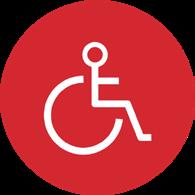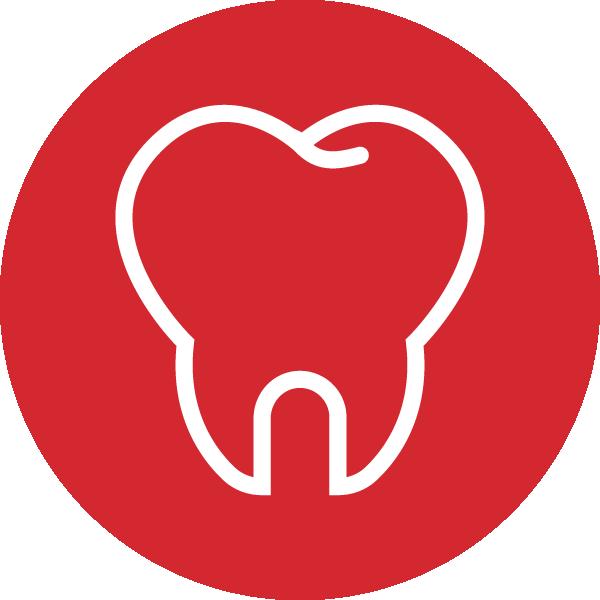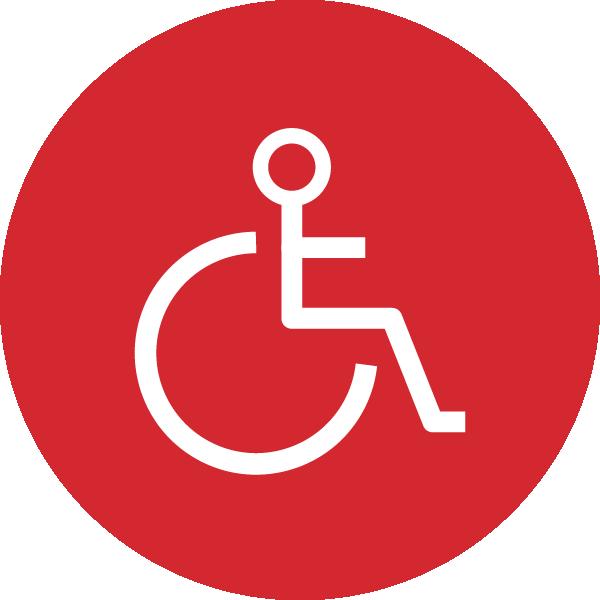


JANUARY 1, 2026 - DECEMBER 31, 2026





JANUARY 1, 2026 - DECEMBER 31, 2026



September 29, 2025 - October 31, 2025
PLAN YEAR & EFFECTIVE DATES: ANNUAL ENROLLMENT DATES:
January 1, 2026 - December 31, 2026
• Employees working 30 hours or more per week are eligible for benefits.
Congratulations on your new employment! Your employment means more than just a paycheck. Your employer also provides eligible employees with a valuable benefits package. Above you will find eligibility requirements and below you will find information about how to enroll in these benefits as a new employee.
All Benefits - Please call PGB’s Employee Services within 30 days of your date of hire and a PGB Benefits Representative will help you enroll in benefits. The Employee Services number is located in the contact section of this guide. You also have the option to self-enroll, if you choose, within 30 days of your date of hire. Please see the self-enrollment instructions in this guide for more information.
Be sure to also review your group’s custom benefits website, that allows for easy, year-round access to benefit information, live chat support, benefit explainer videos, plan certificates and documents, and carrier contacts and forms.
www.PierceGroupBenefits.com/AnsonCountyGovernment

- Medical Reimbursement: $3,300/year Max
- Dependent Care Reimbursement: $7,500/year Max
*You will need to re-enroll in the Flexible Spending Accounts if you want them to continue next year.
If you do not re-enroll, your contribution will stop effective December 31, 2025.












When do my benefits start? The plan year for Colonial Life Insurance Products, Ameriflex Flexible Spending Accounts, Companion Life Dental, Community Eye Care Vision, Companion Life Group Term Life, and CHUBB Long Term Care runs from January 1, 2026, through December 31, 2026. Please Note: Dental benefits are based on the Calendar Year, running from January 1st through December 31st. Dental benefits and deductibles will reset every January 1st.
When do my deductions start? Deductions for Colonial Life Insurance Products, Ameriflex Flexible Spending Accounts, Companion Life Dental, Community Eye Care Vision, Companion Life Group Term Life, and CHUBB Long Term Care start January 2026 for enrolled employees. The Farmers Home & Auto Insurance Plan is available by Direct Billing only. No deductions will be taken via payroll deduction.
Why have my Cancer, Accident, or Medical Bridge benefits not started yet? The Colonial Cancer plan and the Health Screening Rider on the Colonial Accident and Colonial Medical Bridge plan has a 30-day waiting period for new enrollees. Coverage, therefore, will not begin until January 31, 2026.
How do Flexible Spending Account (FSA) funds work, and do my FSA funds have to be used by a specific deadline? Flexible Spending Account expenses must be incurred during the plan year to be eligible for reimbursement. After the plan year ends, an employee has 90 days to submit claims for incurred qualified spending account expenses (or 90 days after employment termination date). If employment is terminated before the plan year ends, the spending account also ends. Failure to use all allotted funds in the FSA account will result in a “Use It or Lose It” scenario.
My spouse is enrolled in an Health Savings Account (HSA), am I eligible for an FSA? As a married couple, one spouse cannot be enrolled in a Medical Reimbursement FSA at the same time the other opens or contributes to an HSA.
How do Dependent Care Account (DCA) funds work and when do they need to be used? Dependent Care Accounts are like FSA accounts and allow you to request reimbursement up to your current balance. However, you cannot receive more reimbursement than what has been deducted from your pay. Any remaining funds in your DCA account must be utilized before the deadline. Failure to use all allotted funds in the DCA account will result in a “Use It or Lose It” scenario.
When will I get my card? If you will be receiving a new debit card, whether you are a new participant or to replace your expired card, please be aware that it may take up to 30 days following your plan effective date for your card to arrive. Your card will be delivered by mail in a plain white envelope. During this time you may use manual claim forms for eligible expenses. Please note that your debit card is good through the expiration date printed on the card.
I want to sign my family up for benefits as well, what information will I need? If signing up for any coverage on your spouse and/or children, please have their dates of birth and social security numbers available when speaking with the Benefits Representative.
What does Pre-Tax vs. Post-Tax Change? Pre-Tax benefits take funds directly from your paycheck to cover benefits before going through State and Federal taxing process. Post-Tax collects funds for benefits after taxes have been taken out. Please be aware there are certain coverages that may be subject to federal and state tax when premium is paid by pretax deduction or employee contribution.
Can I change my benefit elections outside of the enrollment period? Elections made during this enrollment period CANNOT BE CHANGED AFTER THE ENROLLMENT PERIOD unless there is a family status change, otherwise known as a qualifying life event (QLE), as defined by the Internal Revenue Code. Examples of a QLE can be found in the chart on the next page. Once a QLE has occurred, an employee has 30 days to notify PGB’s NC Employee Services at 1-888-6627500 to request a change in elections.
I have a pre-existing condition. Will I still be covered? Some policies may include a pre-existing condition clause. Please read your policy carefully for full details.
Dates: January 1, 2026 - December 31, 2026
The benefit elections you make during Annual Enrollment or as a New Hire will remain in effect for the entire plan year. You will not be able to change or revoke your elections once they have been made unless a Qualifying Life Event (status change) occurs. The summary of events that allow an employee to make benefit changes and instructions for processing those life event changes can be reviewed in the chart below.
Make elections within 30 days of hire date. Documentation is required.
Add your new spouse to your elections within 30 days of the marriage date. A copy of the marriage certificate must be presented.
Birth or Adoption of a Child
Remove the former spouse within 30 days of the divorce. Proof of the divorce will be required. A copy of the divorce decree must be presented.
You and your dependents are not eligible until the next Annual Enrollment period.
Dependent Aging Out
Enroll the new dependent in your elections within 30 days of the birth or adoption date, even if you already have family coverage. A copy of the birth certificate, mother’s copy of birth certificate, or hospital discharge papers must be presented. Once you receive the child’s Social Security Number, don’t forget to update your child’s insurance information record.
Your spouse is not eligible until the next Annual Enrollment period.
Remove or update dependent elections within 30 days of the dependent aging out. For more information and assistance, please call PGB Employee Services at 888-662-7500.
Benefits are not available for the divorced spouse and will be recouped if paid erroneously.
Death of a Spouse or Dependent
Remove the dependent from your elections within 30 days from the date of death. Death certificate must be presented.
The new dependent will not be covered until the next Annual Enrollment period.
Change in Spouse’s Employment or Coverage
Add or drop benefits from your elections within 30 days of the event date. A letter from the employer or insurance company must be presented.
Coverage for the dependent will end at the time of the dependent aging out and the policyholder must remove/update the dependent elections in order for the change to be reflected in the employee’s deductions.
You could pay a higher premium than required and you may be overpaying for coverage required.
You will not be able to make changes until the next Annual Enrollment period.
The examples included in this chart are not all-inclusive. Please speak to a Benefits Representative to learn more.
Qualifying Life Event
Part-Time to Full-Time or Vice Versa
Transferring Employers
Change your elections within 30 days from the employment status change to receive COBRA information or to enroll in benefits as a full-time employee. Documentation from the employer must be provided.
If you are transferring from one PGB client to another, some benefits may be eligible for transfer. Please call PGB Employee Services at 888-662-7500 for more information and assistance.
Result
Benefits may not be available to you or your dependents if you wait to enroll in COBRA. Full-time employees will have to wait until the next Annual Enrollment period.
Loss of Government or Education Sponsored Health Coverage
Entitlement to Medicare or Medicaid
If you, your spouse, or a dependent loses coverage under any group health coverage sponsored by a governmental or educational institution, you may be eligible to add additional coverage for eligible benefits.
You may lose the opportunity to transfer benefits.
Non-FMLA Leave
If you, your spouse, or dependent becomes entitled to or loses coverage under Medicare or Medicaid, you may be able to change coverage under the accident or health plan.
You and your dependents are not eligible until the next Annual Enrollment period.
You and your dependents are not eligible until the next Annual Enrollment period.
An employee taking a leave of absence, other than under the Family & Medical Leave Act, may not be eligible to re-enter the Flexible Benefits program until next plan year. Please contact your Benefit Administrator for more information.
Your individual supplemental/voluntary policies through Colonial Life are portable! To move them from payroll deduction to direct billing, please complete and submit the Payment Method Change Form to Colonial Life within 30 days of retiring. You are also eligible for post-employment Dental, Vision, and Telemedicine benefits through PGB. Please visit: www.piercegroupbenefits.com/ individualcoverage or call our Employee Services at 888-662-7500 for more information and assistance.
You and your dependents are not eligible until the next Annual Enrollment period.
If you do not transfer your policies from payroll deduction to direct billing, Colonial Life will terminate your policies resulting in a loss of coverage.
The examples included in this chart are not all-inclusive. Please speak to a Benefits Representative to learn more.
During your annual enrollment period, a PGB Benefits Representative will be available by appointment to meet with you one-on-one to help you evaluate your benefits based on your individual and family needs, answer any questions you may have, and assist you in the enrollment process. If you prefer, you may also self-enroll online following the instructions on the next page of this guide.
YOU CAN MAKE THE FOLLOWING BENEFIT ELECTIONS DURING THE ANNUAL ENROLLMENT PERIOD:
• Enroll/Re-Enroll in Flexible Spending Accounts.+
• Enroll in, change, or cancel Dental Insurance.
• Enroll in, change, or cancel Vision Insurance.
• Enroll in, change, or cancel Group Term Life Insurance.
• Enroll in, change, or cancel Long Term Care Benefits.
• Enroll in, change, or cancel Home & Auto (DIRECT BILLING ONLY*).**
• Enroll in, change, or cancel Colonial coverage.
+You will need to re-enroll in the Flexible Spending Accounts if you want them to continue each year.
*The Home & Auto Insurance plan is available by Direct Billing only. No deductions will be taken via payroll deduction.
**Please see the coordinating pages of your Benefits Guide for enrollment instructions and/or contact information for Home & Auto Insurance.
You can view details about what benefits your employer offers, view educational videos about all of your benefits, download forms, chat with one of our knowledgeable Benefits Representatives, and more on your personalized benefits website. To view your custom benefits website, visit:
www.PierceGroupBenefits.com/AnsonCountyGovernment
Below is a series of instructions outlining the enrollment process. Please have the following information available before you begin:
• Username and password. If you have forgotten your password, please visit the enrollment website and select “Reset a forgotten password”.
• Social security numbers of the spouse or any dependents you wish to enroll
• Dates of birth for the spouse and any dependents you wish to enroll
• Beneficiary names and social security numbers
• If you are a new employee, please refer to the New Hire information on the Eligibility Requirements page of this guide or contact PGB Employee Services at 888-662-7500 between 8:30am and 5:00pm for assistance.
• If you are an existing employee and unable to log into the online system, please contact the PGB Employee Services at 888-662-7500, or speak with the Benefits Representative assigned to your location.
First time users: Click on your Registration Link in the email sent to you by your admin or Register as a new user. Create an account, and create your own username and password.
Returning users: Visit the enrollment website below and click Login. Log in with the username and password you previously selected.
To login, visit: www.employeenavigator.com/benefits/account/login
After you login click Let’s Begin to complete your required tasks.
Complete any assigned onboarding tasks before enrolling in your benefits.
Once you’ve completed your tasks click Start Enrollment to begin your enrollments.
TIP: If you hit “Dismiss, complete later” you’ll be taken to your Home Page. You’ll still be able to start enrollments again by clicking “Start Enrollments”
After clicking Start Enrollment, you’ll need to complete some personal & dependent information before moving to your benefit elections.
To enroll dependents in a benefit, click the checkbox next to the dependent’s name under: Who am I enrolling?
Below your dependents you can view your available plans and the cost per pay. To elect a benefit, click Select Plan underneath the plan cost.
Click Save & Continue at the bottom of each screen to save your elections.
If you do not want a benefit, click Don’t want this benefit? at the bottom of the screen and select a reason from the drop-down menu.
If you have elected benefits that require a beneficiary designation, Primary Care Physician, or completion of an Evidence of Insurability form, you will be prompted to add in those details.
Review the benefits you selected on the enrollment summary page to make sure they are correct then click Sign & Agree to complete your enrollment.
You can either print a summary of your elections for your records or login at any point during the year to view your summary online.
To complete any required HR tasks, click Start Tasks. If your HR department has not assigned any tasks, you’re finished!
TIP: If you miss a step, you’ll see Enrollment Not Complete in the progress bar with the incomplete steps highlighted. Click on any incomplete steps to complete them.


Click on the video below to learn more about Flexible Spending Accounts!




An account for setting aside tax-free money for healthcare expenses
Use the below information to determine if a Flexible Spending Account (FSA) is right for you and how to best take advantage of an FSA account.
When you enroll in a Flexible Spending Account (FSA) you get to experience tax savings on qualified expenses such as copays, deductibles, prescriptions, over-the-counter drugs and medications, and thousands of other everyday items.
Can I have an FSA and an HSA?
You can’t contribute to an FSA and HSA within the same plan year. However, you can contribute to an HSA and a limited purpose FSA, which only covers dental and vision expenses.
As per IRS Publication 969, an employee covered by an HDHP and a health FSA or an HRA that pays or reimburses qualified medical expenses generally can’t make contributions to an HSA. An employee is also not HSA-eligible during an FSA Grace Period. An employee enrolled in a Limited Purpose FSA is HSA-eligible.
As a married couple, one spouse cannot be enrolled in an FSA at the same time the other is contributing to an HSA. FSA coverage extends tax benefits to family members allowing the FSA holder to be reimbursed for medical expenses for themselves, their spouse, and their dependents.
• Election Accessibility: You will have access to your entire election on the first day of the plan year.
• Save On Eligible Expenses: You can save up to 40% on thousands of eligible everyday expenses such as prescriptions, doctor’s visits, dental services, glasses, over-the-counter medicines, and copays.
• Keep More Money: The funds are taken out of your paycheck "pre-tax" (meaning they are subtracted from your gross earnings before taxes) throughout the course of the year. Let’s say you earn $40,000 a year and contribute $1,500 to an FSA; so, only $38,500 of your income gets taxed. That means you are increasing your take-home pay simply by participating!
• Easy Spending and Account Management: You will receive an Ameriflex Debit Mastercard linked to your FSA. You can use your card for eligible purchases everywhere Mastercard is accepted. Account information can be securely accessed 24/7 online and through the mobile app.
The IRS determines what expenses are eligible under an FSA. Below are some examples of common eligible expenses.
Copays, deductibles, and other payments you are responsible for under your health plan.
Routine exams, dental care, prescription drugs, eye care, hearing aids, etc.
Prescription glasses and sunglasses, contact lenses and solution, LASIK, and eye exams.
Certain OTC expenses such as Band-aids, medicine, First Aid supplies, etc. (prescription required).
For a full list of eligible expenses, go to myameriflex.com/eligibleexpenses.
Diabetic equipment and supplies, durable medical equipment, and qualified medical products or services.
If you contribute dollars to a reimbursement account and do not use all the money you deposit, you will lose any remaining balance in the account at the end of the eligible claims period. This rule, established by the IRS as a component of tax-advantaged plans, is referred to as the “use-or-lose” rule.
To avoid losing any of the funds you contribute to your FSA, it’s important to plan ahead as much as possible to estimate what your expenditures will be in a given plan year.

Save even more with your FSA through our partnership.
Get $20 off any order of $150 with code PBG20FSA


customer
• The largest selection of guaranteed FSA-eligible products
• Phone and live chat support available 24 hours a day / 7 days a week
• Fast and free shipping on orders over $50
• Use your FSA card or any other major credit card for purchases

Eligibility List
Search comprehensive list of eligible products and services.

Learning Center
Easy tips and resources for utilizing an FSA.
Take control of your health and wellness with guaranteed FSA-eligible essentials. Pierce Group Benefits partners with the FSA store to provide one convenient location for Flexible Spending Account holders.

FSA Calculator
Estimate how much you can save with an FSA.

Savings Center
Your funds go further with the FSA Store rewards program.
Click or Scan to Shop Now


Click on the video below to learn more about Dependent Care Accounts!




Set aside tax-free money for daycare and dependent care services
Use the below information to determine if a Dependent Care Account (DCA) is right for you and how to best take advantage of an DCA account.
When you enroll in a Dependent Care Account (DCA) you get to experience tax savings on expenses like daycare, elderly care, summer day camp, preschool, and other services that allow you to work full time.
• Save On Eligible Expenses: You can use a DCA to pay for qualifying expenses such as daycare, summer day care, elder care, before and after school programs, and pre-school.
• Keep More Money: The funds are taken out of your paycheck "pre-tax" (meaning they are subtracted from your gross earnings before taxes) throughout the course of the year. Let’s say you earn $40,000 a year and contribute $1,500 to an DCA; so, only $38,500 of your income gets taxed. That means you are increasing your take-home pay simply by participating!
• Easy Spending and Account Management: You will receive an Ameriflex Debit Mastercard linked to your DCA. You can use your card for eligible purchases everywhere Mastercard is accepted. Account information can be securely accessed 24/7 online and through the mobile app.
The IRS determines what expenses are eligible under a DCA. Below are some examples of common eligible expenses:
For a full list of eligible expenses, go to myameriflex.com/eligibleexpenses.

How to Access Your Ameriflex Account:
Go to MyAmeriflex.com and click “Login” from the upper right hand corner. When prompted, select “Participant.”
How to Register Online For Your Ameriflex Spending Account:
Click the register button atop the right corner of the home screen.
1.As the primary account holder, enter your personal information.
• Choose a unique User ID and create a password (if you are told that your username is invalid or already taken, you must select another).
• Enter your first and last name.
• Enter your email address.
• Enter your Employee ID, which in most cases, will be the account holder’s Social Security Number(no dashes or spaces needed).
2.Check the box if you accept the terms of use.
3.Click 'register'. This process may take a few seconds. Do not click your browser’s back button or refresh the page.
4.Last, you must complete your Secure Authentication setup. Implemented to protect your privacy and help us prevent fraudulent activity, setup is quick and easy. After the registration form is successfully completed, you will be prompted to complete the secure authentication setup process:
Step 1: Select a Security Question option, and type in a corresponding answer.
Step 2: Repeat for the following three Security Questions, then click next.
Step 3: Verify your email address, and then click next.
Step 4: Verify and submit setup information,
5.The registration process is complete! Should you receive an information error message that does not easily guide you through the information correction process, please feel free to contact our dedicated Member Services Team at 888.868.FLEX (3539).
Download the MyAmeriflex mobile app, available through the App Store or Google Play.
Your credentials for the MyAmeriflex Portal and the MyAmeriflex Mobile App are the same; there is no need for separate login information!






Preventive Services oral exams, cleanings (two per 12 months), bitewing X-rays (one per 12 months), space maintainers, pain treatment, sealants, full mouth X-rays
Basic Services fillings, anesthesia, endodontics, simple and surgical extractions, oral surgery, periodontics Benefit Waiting Period None
Major Services crowns, inlays, onlays, dentures, bridges, implants, perio trays

Covered Expenses will not include and no benefits will be payable for the following:
1. Expenses in any Class of services that are incurred during the Insured's waiting period for services in that Class (as shown in the Schedule of Benefits), except as may be provided under the Takeover Provisions provision. An Insured is not eligible for Takeover Provisions if Takeover Provisions are not provided, or if Takeover Provisions are provided but the person: a)is a Late Entrant; b) became insured under the Policy after the Employer's Effective Date; or c) was not insured under the Employer's prior plan that was replaced by coverage under the Policy.
2. Any treatment which is for cosmetic purposes, or to correct congenital malformations, other than Medically Necessary treatment of congenital cleft in the lip and/or palate, or other birth abnormalities of a newborn.
3. Initial placement of any full or partial denture, implants, fixed bridge, or other prosthetic appliance during any period of continuous coverage for the Insured under the Policy, unless such placement is needed because of the extraction of one or more of the Insured's natural teeth during the same period of continuous coverage. Any portion of the expense that is identifiable as applying specifically to the replacement of a tooth extracted before that period of continuous coverage is not a Covered Expense. The extraction of a third molar (wisdom tooth) does not qualify the appliance for payment. Any such appliance must include the replacement of the extracted tooth or teeth.
4. Replacement of any full or partial denture, fixed bridge, other appliance, crown, inlay, onlay, or other precious or semiprecious metal restoration within 5 year(s) of the date of the last placement of the item. But if a replacement is required because of an accidental bodily injury sustained while the Insured is covered under the Policy, it will be a Covered Expense. In any event, replacement is not a Covered Expense if the item can instead be repaired or otherwise restored to adequate function.
5. Replacement of an existing implant and/or supported prosthetic device is covered only once every 10 year(s) from the placement date of such device and only then if it is unserviceable and cannot be made serviceable. But if a replacement is required because of an accidental bodily injury sustained while the Insured is covered under the Policy, it will be a Covered Expense. In any event, replacement is not a Covered Expense if the item can instead be repaired or otherwise restored to adequate function.
6. Addition of a new tooth or teeth to an existing full or partial denture, fixed bridge, or other prosthetic appliance during any period of continuous coverage for the Insured under the Policy, unless such addition is a replacement of a natural tooth or teeth extracted during the same period of continuous coverage. The extraction of a third molar (wisdom tooth) does not qualify the appliance for payment.
7. Any expense incurred before the Insured's insurance under the Policy starts; or any expense incurred during any period of continuous coverage for the Insured under the Policy if the procedure starts before the period of continuous coverage starts.
8. Any procedure that starts, or any expense that is incurred (regardless of when the procedure starts), after the Insured's insurance under the Policy ends. But this exclusion does not apply for any denture, partial denture, fixed bridge, other appliance, crown, inlay, onlay, or other precious or semiprecious metal restoration if both: a)the procedure starts while the Insured's insurance under the Policy is in effect; and b) the expense is incurred within 90 days after the Insured's insurance under the Policy ends.
9. Duplication of appliances, or replacement of lost or stolen appliances. Appliances, restorations, or procedures to: a)alter vertical dimension; b) restore or maintain occlusion; c) splint or replace tooth structure lost as a result of abrasion or attrition; or d) treat jaw fractures or disturbances of the temporomandibular joint.
10. Any procedure that is not shown on the list of Covered Dental Expense Procedures.
11. Education or training in, or supplies used for, dietary or nutritional counseling, personal oral hygiene or dental plaque control.
12. Charges for broken appointments or the completion of claim forms.
13. Subgingival curettage or root planing unless the presence of periodontal disease is confirmed by both x-rays and pocket depth summaries of each tooth involved.
14. Charges for services or supplies for the treatment of an occupational injury which are paid, or payable, under the North Carolina Workers’ Compensation Act only to the extent workers’ compensation insurance carrier according to a final adjudication under the North Carolina Workers’ Compensation Act or an order of the North Carolina Industrial Commission approving a settlement agreement under the North Carolina Workers’ Compensation Act. because of an Insured Individual sickness, injury, or condition for which he or she is eligible for benefits under any workers’ compensation act or similar laws.
15. Charges for which the Insured Individual is not liable or which would not have been made had no insurance been in force.
16. Services that:
a)are not recommended by a Dentist;
b) are not required for necessary care and treatment; or c)do not have a reasonably favorable prognosis.
17. Charges because of an Insured's sickness, injury, or other condition due to war or any act of war, declared or not, or sustained while on full-time active duty in the armed forces of any country.
18. Benefits payable to an Insured Individual if payment is not legal where the Insured Individual is living when expenses are incurred.
19. Services related to: equilibration; bite registration or bite analysis.
20. Crowns for the purpose of periodontal splinting.
21. Charges for overdentures, precision or semi-precision attachments and associated endodontic treatment, any other customized attachments, or any specialized prosthodontic techniques or characterizations.
22. Charges for: myofunctional therapy, orthognathic surgery, or athletic mouthguards.
23. Procedures for which benefits are payable under the Employer's medical expense benefit plan for Employees and their Dependents. See the Coordination of Benefits provision for an explanation.
24. Services rendered by the Insured's Spouse, parent, parent-in-law, brother or sister, brother-in-law or sister-in-law, child (of the Insured or the Insured's Spouse), or any person residing in the Insured's household.
Preventive Services oral exams, cleanings (two per 12 months), bitewing X-rays (one per 12 months), space maintainers, pain treatment, sealants, full mouth X-rays
Basic Services fillings, anesthesia, endodontics, simple and surgical extractions, oral surgery, periodontics Benefit Waiting Period None Type III
Major Services crowns, inlays, onlays, dentures, bridges, implants, perio trays

Covered Expenses will not include and no benefits will be payable for the following:
1. Expenses in any Class of services that are incurred during the Insured's waiting period for services in that Class (as shown in the Schedule of Benefits), except as may be provided under the Takeover Provisions provision. An Insured is not eligible for Takeover Provisions if Takeover Provisions are not provided, or if Takeover Provisions are provided but the person: a)is a Late Entrant; b) became insured under the Policy after the Employer's Effective Date; or c) was not insured under the Employer's prior plan that was replaced by coverage under the Policy.
2. Any treatment which is for cosmetic purposes, or to correct congenital malformations, other than Medically Necessary treatment of congenital cleft in the lip and/or palate, or other birth abnormalities of a newborn.
3. Initial placement of any full or partial denture, implants, fixed bridge, or other prosthetic appliance during any period of continuous coverage for the Insured under the Policy, unless such placement is needed because of the extraction of one or more of the Insured's natural teeth during the same period of continuous coverage. Any portion of the expense that is identifiable as applying specifically to the replacement of a tooth extracted before that period of continuous coverage is not a Covered Expense. The extraction of a third molar (wisdom tooth) does not qualify the appliance for payment. Any such appliance must include the replacement of the extracted tooth or teeth.
4. Replacement of any full or partial denture, fixed bridge, other appliance, crown, inlay, onlay, or other precious or semiprecious metal restoration within 5 year(s) of the date of the last placement of the item. But if a replacement is required because of an accidental bodily injury sustained while the Insured is covered under the Policy, it will be a Covered Expense. In any event, replacement is not a Covered Expense if the item can instead be repaired or otherwise restored to adequate function.
5. Replacement of an existing implant and/or supported prosthetic device is covered only once every 10 year(s) from the placement date of such device and only then if it is unserviceable and cannot be made serviceable. But if a replacement is required because of an accidental bodily injury sustained while the Insured is covered under the Policy, it will be a Covered Expense. In any event, replacement is not a Covered Expense if the item can instead be repaired or otherwise restored to adequate function.
6. Addition of a new tooth or teeth to an existing full or partial denture, fixed bridge, or other prosthetic appliance during any period of continuous coverage for the Insured under the Policy, unless such addition is a replacement of a natural tooth or teeth extracted during the same period of continuous coverage. The extraction of a third molar (wisdom tooth) does not qualify the appliance for payment.
7. Any expense incurred before the Insured's insurance under the Policy starts; or any expense incurred during any period of continuous coverage for the Insured under the Policy if the procedure starts before the period of continuous coverage starts.
8. Any procedure that starts, or any expense that is incurred (regardless of when the procedure starts), after the Insured's insurance under the Policy ends. But this exclusion does not apply for any denture, partial denture, fixed bridge, other appliance, crown, inlay, onlay, or other precious or semiprecious metal restoration if both: a)the procedure starts while the Insured's insurance under the Policy is in effect; and b) the expense is incurred within 90 days after the Insured's insurance under the Policy ends.
9. Duplication of appliances, or replacement of lost or stolen appliances. Appliances, restorations, or procedures to: a)alter vertical dimension; b) restore or maintain occlusion; c) splint or replace tooth structure lost as a result of abrasion or attrition; or d) treat jaw fractures or disturbances of the temporomandibular joint.
10. Any procedure that is not shown on the list of Covered Dental Expense Procedures.
11. Education or training in, or supplies used for, dietary or nutritional counseling, personal oral hygiene or dental plaque control.
12. Charges for broken appointments or the completion of claim forms.
13. Orthodontic therapy.
14. Any services (including, but not limited to, oral surgery) that are preliminary to, or otherwise associated with, orthodontic therapy (including, but not limited to, exposure of impacted or unerupted teeth or extractions).
15. Subgingival curettage or root planing unless the presence of periodontal disease is confirmed by both x-rays and pocket depth summaries of each tooth involved.
16. Charges for services or supplies for the treatment of an occupational injury which are paid, or payable, under the North Carolina Workers’ Compensation Act only to the extent workers’ compensation insurance carrier according to a final adjudication under the North Carolina Workers’ Compensation Act or an order of the North Carolina Industrial Commission approving a settlement agreement under the North Carolina Workers’ Compensation Act. because of an Insured Individual sickness, injury, or condition for which he or she is eligible for benefits under any workers’ compensation act or similar laws.
17. Charges for which the Insured Individual is not liable or which would not have been made had no insurance been in force.
18. Services that: a)are not recommended by a Dentist; b) are not required for necessary care and treatment; or c)do not have a reasonably favorable prognosis.
19. Charges because of an Insured's sickness, injury, or other condition due to war or any act of war, declared or not, or sustained while on full-time active duty in the armed forces of any country.
20. Benefits payable to an Insured Individual if payment is not legal where the Insured Individual is living when expenses are incurred.
21. Services related to: equilibration; bite registration or bite analysis.
22. Crowns for the purpose of periodontal splinting.
23. Charges for overdentures, precision or semi-precision attachments and associated endodontic treatment, any other customized attachments, or any specialized prosthodontic techniques or characterizations.
24. Charges for: myofunctional therapy, orthognathic surgery, or athletic mouthguards.
25. Procedures for which benefits are payable under the Employer's medical expense benefit plan for Employees and their Dependents. See the Coordination of Benefits provision for an explanation.
26. Services rendered by the Insured's Spouse, parent, parent-in-law, brother or sister, brother-in-law or sister-in-law, child (of the Insured or the Insured's Spouse), or any person residing in the Insured's household.







All members enrolled in the CEC vision plan can take advantage of our simple and flexible benefits. Each plan year, you’ll receive an eye exam, a flexible eyewear allowance, and a contact lens fitting.
Purchase exactly what you want frames, lenses, contact lenses, sunglasses, special lens options, and any combination of these items. If the eyewear you want is sold in an optical shop, it’s covered!
Non-prescription eyewear, including blue -light blocking glasses, sunglasses, safety glasses, and readers, is covered by your CEC vision plan. Don’t need prescription lenses? This is a great way to use your annual eyewear allowance!
CEC’s network includes optometrists, ophthalmologists, and national retail optical chains, ensuring you can easily find a provider that meets your needs. Visit cecvision.com/search to find an in-network provider near you.
Even if you have perfect vision, your annual eye exam is critical to your overall health and wellness. Common diseases , including glaucoma, diabetes, cardiovascular disease, and cancer , can be identified during an eye exam. Your exam is covered-in-full. You just cover the copay.
Our Member Portal gives you 24/7 access to find a provider, view your benefit information, check your current eligibility, print a temporary ID card, and more! Log in at: cecvision.com/members/login

Eyeconic offers CEC members special discounts when using the promo code CECMEMBERS at eyeconic.com.
Company: County of Anson
CEC Coverage Effective Date: 01/01/2025
150 PLAN
Frequency: All benefits renew every 12 months.
Exam An annual routine eye exam.
Retinal Screening
Eyewear
An enhancement to the annual eye exam where high -resolution images are taken of the inside of the eye to detect and monitor conditions like diabetes.
An annual $150 flexible allowance for prescription and non-prescription eyewear. 20% discount on glasses/10% discount on contacts for any overages.
Contact Lens Fitting
An annual fitting or evaluation. $10
Additional Pairs of Glasses or Contacts
LASIK Discounts
Special Offers
Up to $150 minus the copay
minus the copay
Members receive a 20% savings on additional pairs of prescription and non-prescription glasses, and 10% savings on contact lenses, from any CEC in-network provider within 12 months of their last eye exam.
Members can save up to 50% from participating QualSight LASIK providers, including TLC Laser Eye Center.
A variety of special offers are available to CEC members. Visit cecvision.com/members/specialoffers for additional information!







Group Number 907-14-01769 Group Term Life Insurance and AD&D Insurance
For many employees, Group Term Life insurance may be the only life insurance they have.
ADDITIONAL BENEFITS
AD&D
Waiver of Premium
∙ Benefits terminate at retirement unless provided for in the Schedule of Benefits
∙ Basic Life Insurance includes waiver of premium
Conversion Privilege
Accelerated Benefit
The full AD&D Insurance benefit is payable for the following losses if such loss is the result of an accident: loss of both hands or both feet, loss of sight in both eyes, loss of a hand and a foot, loss of a hand or a foot and the sight in one eye. Half of the AD&D Insurance benefit is payable for the following losses if such loss is the result of an accident: loss of a hand, loss of a foot, loss of the sight in one eye. The loss must occur within 180 days of the date of the accident. Total payment arising out of one accident may not exceed the amount for which the employee is insured.
If an employee is totally disabled prior to age 60, Group Term Life Insurance coverage will be continued without payments of premium subject to any scheduled reductions and terminations. The employee may apply for this benefit after 12 months of total and continuous disability. Coverage continues for eligible employees whether or not the master policy remains in force but terminates at the earlier of retirement or age 65.
Employees may convert to an individual Life Insurance policy within 31 days of leaving active employment. No evidence of insurability will be required.
For Basic Group Term Life Insurance policies with employee coverage amounts of $10,000 or more, an eligible employee as of the policy effective date who becomes terminally ill while covered by Companion Life can immediately access 75% of their benefit (maximum $100,000) without
This Benefits Highlights document explains the general purpose of the insurance described, but in no way changes or affects the policy as actually issued. In the event of a discrepancy between this document and the policy, the terms of the policy apply. Benefits are subject to state availability. Policy terms and conditions vary by state. Complete details are in the Certificate of Insurance issued to each insured individual and the Master Policy as issued to the policyholder. These benefits are effective January 1, 2024.

Group Number 907-14-01769
Group Term Life Insurance and AD&D Insurance
administrative or interest charges. Employees enrolled after the initial policy effective date become eligible for this benefit after one year of continuous coverage.
This Benefits Highlights document explains the general purpose of the insurance described, but in no way changes or affects the policy as actually issued. In the event of a discrepancy between this document and the policy, the terms of the policy apply. Benefits are subject to state availability. Policy terms and conditions vary by state. Complete details are in the Certificate of Insurance issued to each insured individual and the Master Policy as issued to the policyholder.
These benefits are effective January 1, 2024. These
With respect to the Life Insurance Benefit, in the event an Insured dies through intentionally self-inflicted injuries or any such attempt, while sane or insane, within two years from the Effective Date of coverage, a benefit will not be paid. Our liability shall be only to return premiums paid under the Policy as to such Insured.
The Suicide Exclusion will not apply to the Insured who was insured for Group Life insurance under the prior carrier’s policy on its termination date,
If an Insured commits suicide within two years from the date an increase in life insurance (other than a scheduled or automatic increase) took effect, the Company will pay to the Beneficiary the amount of insurance that was in effect before the increase. Any premium paid by the Insured for the increase will be returned to the Beneficiary, and any premium paid by the Policyholder will be returned to the Policyholder
If You suffer any of the following losses We will pay the indicated percentage of the benefit amount. The loss must: (1) result from an Accidental Injury and independent of all other causes. The Accidental Injury must be caused by an accident that occurs while this benefit is in force as to the Insured; and (2) occur within 180 days of that accident. The benefit amount is shown in the Schedule of Benefits.
Accidental Loss of Life
Accidental Loss of Both Hands or Both Feet
Accidental Loss of Entire Sight of Both Eyes
Accidental Loss of One Hand and One Foot
Accidental Loss of One Hand and the Entire Sight of One Eye
Accidental Loss of One Foot and the Entire Sight of One Eye
Accidental Loss of One Hand or One Foot
Accidental Loss of Entire sight of One Eye
Accidental Loss of Arm
Accidental Loss of Leg
"Loss" as used above means:
(1) arm, which means actual severance at or above the elbow; (2) leg, which means actual severance at or above the knee;
100% of AD&D Benefit
100% of AD&D Benefit
100% of AD&D Benefit
100% of AD&D Benefit
100% of AD&D Benefit
100% of AD&D Benefit
50% of AD&D Benefit
50% of AD&D Benefit
50% of AD&D Benefit
50% of AD&D Benefit
(3) hand, which means: a. actual severance at or above the wrist, but below the elbow; or b. loss of a thumb and index finger on the same hand where the thumb and index finger are permanently severed through or above the third joint from the tip of the index finger and the second joint from the tip of the thumb;
(4) foot, which means actual severance at or above the ankle but below the knee; and
(5) sight, which means: a. removal of the eye; or b. the permanent, uncorrectable loss of sight in at least one eye defined as either the corrected visual acuity of less than 20/200 or a visual field restriction of 20° or less which has persisted for 180 days from the date of loss. No benefit will be paid for loss of sight if, in the Physician’s opinion, partial or total restoration of sight could occur naturally, or as a result of surgery or a device or implant.
If You suffer more than one of the above losses as a result of the same accident, the benefit provided under this provision will be paid only for the greatest loss.
The Employee Accidental Death Benefit is payable to the Beneficiary, the Dependent Accidental Death Benefit is payable to the Employee, and the Employee and Dependent Accidental Dismemberment Benefits are payable to the Employee. The benefits are also payable to other persons or entities as designated by the Employee.
Benefits (continued from Page 3)
The Accidental Death and Dismemberment Benefit will end at the earliest of:
1.Upon written request from an Employee, unless prohibited by federal or state law or the Policyholder’s plan;
2.The date a Policyholder’s group term life insurance coverage ends under the Certificate;
3.The end of the period for which the last Premium has been paid for a Policyholder, in accordance with the provisions of the Certificate;
4.The date the group term life insurance Policy ends;
5.The date a Policyholder ceases to be in an eligible class under the Certificate; or
6.The date a Policyholder retires
When the Accidental Death and Dismemberment Benefit ends, this will not prejudice the payment of benefits for any accident that occurred while the benefit was in force.
The Accidental Death and Dismemberment Benefit includes the following provisions for insured Employees electing both Employee and family coverage:
an additional $10,000 will be paid if the Employee and/or the Employee's insured Dependents die or are dismembered as the result of a covered accident. The covered accident must occur while the Employee or one of the Employee's insured Dependents is driving an automobile and/or riding in an automobile; and all of the following apply:
1.the automobile must be equipped with seat belts;
2.the seat belt must have been in actual use and properly fastened at the time of the accident;
3.the position of the seat belt must be certified in the official report of the accident or by the investigating police officer;
4.the driver of the automobile must be properly licensed and must not have been driving while impaired, intoxicated or under the influence of drugs, unless prescribed by a licensed Physician, at the time of the accident;
5. "Automobile" means a four wheel passenger car, station wagon, jeep, pickup truck and van-type car; and
6."Seat Belt" means the belts that form an occupant restraint system and includes infant and child restraint systems when properly used with a seat belt.
The Policy does not provide benefits for any loss caused by or resulting from:
1.declared or undeclared war or any act of war;
2.service in the armed forces of any country or international authority;
3.suicide or intentionally self-inflicted injury whether the Insured was sane or insane at the time of the suicide or injury;
4.flying in an aircraft owned, operated, leased or chartered by the Policyholder;
5.participation in, or in consequence of having participated in, the commission of any felony;
6.sickness or disease, ptomaine or bacterial infection (except infections occurring through an accidental cut or wound);
7. loss caused or contributed to by intoxication as defined by the jurisdiction where the accident occurred and intentionally taking a narcotic, drug, barbiturate, hallucinogenic drug, alcohol or any combination of these when not part of a professional medical treatment plan; or
8. participation in a riot or insurrection, or commission of, or attempt to commit an assault or felony, or while engaged in an illegal occupation.
Exclusions and Limitations
1.to any self-inflicted injuries or suicide attempts;
2.to any life insurance benefits for Dependent Children;
3.if an Insured person is Totally Disabled on his or her Effective Date of coverage under the Policy;
4.to a group term life insurance benefit that has been assigned;
5.to a group term life insurance benefit payable to an irrevocable Beneficiary;
6.to a group term life insurance benefit with a face amount of less than $10,000; or
7.if the required group term life insurance premium is due and unpaid.
The Accelerated Benefit does not apply to the Accidental Death and Dismemberment Benefit.
This is an outline of Voluntary Group Term Life Insurance and Accidental Death and Dismemberment Insurance (AD&D) Coverage underwritten by Companion Life Insurance Company.
Voluntary Term Life Insurance Group Number 9071401769
With Companion Life’s Choice Plus, you may be able to fit a Voluntary Group Term Life Insurance plan in your budget. Take a look at our Companion Choice Plus Plan:
• Benefit choice of $5,000 increments, minimum amount $10,000 with a maximum of $500,000 (up to 7x salary).
• Dependent child benefit is a choice of $2,500, $5,000, $7,500, or $10,000. Monthly rate is $0.25 per $1,000.
• Spouse benefit: $2,500 increments, not to exceed 50% of Employee Election; $150,000 maximum benefit.
• Accelerated benefit provision: You may access up to 75% of the benefit in the event of a terminal illness (maximum $100,000).
• Portability provision: You may continue the policy for you and your spouse at the same group rates if your employment ends, policy continues until the employer’s policy cancels.
• Waiver of premium provision: You may stop paying premiums if you become totally disabled (insured must be totally disabled 12 consecutive months before the waiver of premium begins).
• Conversion privilege: Conversion to permanent insurance available.
• Age reduction formula: Voluntary Life Insurance benefit amounts will reduce by 35% at age 65. 50% at age 70. 75% at age 75. 80% at age 80. Benefits terminate at retirement. The spouse's Voluntary Life Insurance benefit amount will reduce in accordance with the spouse's age.
• Guaranteed Issue: Employee 225000; Spouse 50,000.
This Benefits Highlights document explains the general purpose of the insurance described, but in no way changes or affects the policy as actually issued. In the event of a discrepancy between this document and the policy, the terms of the policy apply. Benefits are subject to state availability. Policy terms and conditions vary by state. Complete details are in the Certificate of Insurance issued to each insured individual and the Master Policy as issued to the policyholder.
This is an outline of Voluntary Group Term Life Insurance and Accidental Death and Dismemberment Insurance (AD&D) Coverage underwritten by Companion Life Insurance Company.
For added protection and value, you can include our Accidental Death & Dismemberment Insurance (AD&D) option. The amount of AD&D Insurance coverage must be equal to the Voluntary Life Insurance benefits the employees select for themselves and their covered spouses. AD&D Insurance benefit is selected at the group level. AD&D Insurance rate is $0.03 per $1,000 and is not included in the table below.
The Premium Cost Chart is for illustrative purposes only; your premium cost may be slightly higher or lower due to rounding. The information provided is only a summary of the benefits available. Refer to your certificate for details and limitations of coverage.
Premium Rates for an insured will increase on the policyholder’s next anniversary following the date the insured/spouse enters the next age bracket. In addition, Companion Life reviews premiums annually and rates are subject to change.
This outline of coverage for Voluntary Group Term Life Insurance and Accidental Death and Dismemberment Insurance is not a contract; please refer to your proposal for current rates. Full details of the coverage are included in the certificate of coverage and master policy from Companion Life Insurance Company.
Group Term Life Insurance
Suicide Exclusion
With respect to the Life Insurance Benefit, in the event an Insured dies through intentionally selfinflicted injuries or any such attempt, while sane or insane, within two years from the Effective Date of coverage, a benefit will not be paid. Our liability shall be only to return premiums paid under the Policy as to such Insured. The Suicide Exclusion will not apply to the Insured who was insured for Group Life insurance under the prior carrier’s policy on its termination date. If an insured commits suicide within two years from the date an increase in the life insurance (other than a scheduled or automatic increase) took effect, the Company will pay to the Beneficiary the amount of insurance that was in effect before the increase. Any premium paid by the Insured for the increase will be returned to the Beneficiary, and any premium paid by the Policyholder will be returned to the Policyholder.
This Benefits Highlights document explains the general purpose of the insurance described, but in no way changes or affects the policy as actually issued. In the event of a discrepancy between this document and the policy, the terms of the policy apply. Benefits are subject to state availability. Policy terms and conditions vary by state. Complete details are in the Certificate of Insurance issued to each insured individual and the Master Policy as issued to the policyholder.
This is an outline of Voluntary Group Term Life Insurance and Accidental Death and Dismemberment Insurance (AD&D) Coverage underwritten by Companion Life Insurance Company.
Accidental Death & Dismemberment Insurance Benefits
If the Employee or an insured Dependent suffer any of the following losses, We will pay the indicated percentage of the benefit amount. The loss must result from an Accidental Injury and independent of all other causes. The Accidental Injury must be caused by an accident that occurs while this benefit is in force as to the Insured. The loss must occur within 180 days of that accident. The benefit amount is shown in the Schedule of Benefits.
Accidental Loss of Life
Accidental Loss of Both Hands or Both Feet
Accidental Loss of Entire Sight of Both Eyes
Accidental Loss of One Hand and One Foot
Accidental Loss of One Hand and the Entire Sight of One Eye
Accidental Loss of One Foot and the Entire Sight of One Eye
Accidental Loss of One Hand or One Foot
Accidental Loss of Entire sight of One Eye
Accidental Loss of One Arm
Accidental Loss of One Leg
“Loss" as used above means:
1. arm, which means actual severance at or above the elbow;
2. leg, which means actual severance at or above the knee;
100% of AD&D Benefit
100% of AD&D Benefit
100% of AD&D Benefit
100% of AD&D Benefit
100% of AD&D Benefit
100% of AD&D Benefit
50% of AD&D Benefit
50% of AD&D Benefit
50% of AD&D Benefit
50% of AD&D Benefit
3. hand, which means: a. actual severance at or above the wrist, but below the elbow; or b. loss of a thumb and index finger on the same hand where the thumb and index finger are permanently severed through or above the third joint from the tip of the index finger and the second joint from the tip of the thumb;
4. foot, which means actual severance at or above the ankle but below the knee;
5. and sight, which means: a. removal of the eye; or b. the permanent, uncorrectable loss of sight in at least one eye defined as either the corrected visual acuity of less than 20/200 or a visual field restriction of 20° or less which has persisted for 180 days from the date of loss. No benefit will be paid for loss of sight if, in the Physician’s opinion, partial or total restoration of sight could occur naturally, or as a result of surgery or a device or implant.
If the Insured or an insured Dependent suffer more than one of the above losses as a result of the same accident, the benefit provided under this provision will be paid only for the greatest loss.
The Employee Accidental Death Benefit is payable to the Beneficiary, the Dependent Accidental Death Benefit is payable to the Employee, and the Employee and the Dependent Accidental Dismemberment Benefits are payable to the Employee. The benefits are also payable to other persons or entities as designated by the Employee.
The Accidental Death and Dismemberment Benefit will end at the earliest of:
1. Upon written request from an Employee, unless prohibited by federal or state law or the Policyholder’s plan;
2. The date a Policyholder’s group tern life insurance coverage ends under the certificate;
3. The end of the period for which the last Premium has been paid for a Policyholder, in accordance with the provisions of the certificate;
4. The date the group term life insurance policy ends;
5. The date a Policyholder ceases to be an eligible class under the certificate; or
6. The date Policyholder retires
When the Accidental Death and Dismemberment Benefit ends, this will not prejudice the payment of benefits for any accident that occurred while the benefit was in force.
This Benefits Highlights document explains the general purpose of the insurance described, but in no way changes or affects the policy as actually issued. In the event of a discrepancy between this document and the policy, the terms of the policy apply. Benefits are subject to state availability. Policy terms and conditions vary by state. Complete details are in the Certificate of Insurance issued to each insured individual and the Master Policy as issued to the policyholder.
This is an outline of Voluntary Group Term Life Insurance and Accidental Death and Dismemberment Insurance (AD&D) Coverage underwritten by Companion Life Insurance Company.
Seat Belt Benefit
An additional $10,000 will be paid if the Employee and/or the Employee's insured Dependents die or are dismembered as the result of a covered accident. The covered accident must occur while the Employee or one of the Employee's insured Dependents is driving an automobile and/or riding in an automobile; and all of the following apply:
1. the automobile must be equipped with seat belts;
2. the seat belt must have been in actual use and properly fastened at the time of the accident;
3. the position of the seat belt must be certified in the official report of the accident or by the investigating police officer;
4. the driver of the automobile must be properly licensed and must not have been driving while impaired, intoxicated or under the influence of drugs, unless prescribed by a licensed Physician, at the time of the accident;
5. “Automobile” means a four wheel passenger car, station wagon, jeep, pickup truck and vantype car; and
6. “Seat Belt” means the belts that form an occupant restraint system and includes infant and child restraint systems when properly used with a seat belt.
Accidental Death & Dismemberment Insurance
Exclusions
This Policy does not provide benefits for any loss caused by or resulting from:
1. declared or undeclared war or any act of war;
2. service in the armed forces of any country or international authority;
3. suicide or intentionally selfinflicted injury whether the Insured was sane or insane at the time of the suicide or injury;
4. flying in an aircraft owned, operated, leased or chartered by the Policyholder;
5. participation in, or in consequence of having participated in, the commission of any felony;
6. sickness or disease, ptomaine or bacterial infection (except infections occurring through an accidental cut or wound); 7. loss caused or contributed to by intoxication as defined by the jurisdiction where the accident occurred and intentionally taking a narcotic, drug, barbiturate, hallucinogenic drug, alcohol or any combination of these when not part of a professional medical treatment plan; or 8. participation in a riot or insurrection, or commission of, or attempt to commit an assault or felony, or while engaged in an illegal occupation.
Accelerated Death Benefit
Exclusions and Limitations
The Accelerated Benefit will not apply: to any selfinflicted injuries or suicide attempts;
1. to any life insurance benefits for Dependent Children;
2. if an Insured person is Totally Disabled on his or her Effective Date of coverage under this Policy ;
3. to a group term life insurance benefit that has been assigned;
4. to a group term life insurance benefit payable to an irrevocable Beneficiary; 5. to a group term life insurance benefit with a face amount of less than $10,000; or 6. if the required group term life insurance premium is due and unpaid
The Accelerated Benefit will not apply to the Accidental Death and Dismemberment Benefit.
This Benefits Highlights document explains the general purpose of the insurance described, but in no way changes or affects the policy as actually issued. In the event of a discrepancy between this document and the policy, the terms of the policy apply. Benefits are subject to state availability. Policy terms and conditions vary by state. Complete details are in the Certificate of Insurance issued to each insured individual and the Master Policy as issued to the policyholder.






Program Description:
As an employee you have access to auto and home insurance from Farmers GroupSelect. This program provides you with special savings, outstanding customer service, and a full suite of products. In addition to auto and homeowners insurance, we offer a variety of other policies and endorsements, including:
• Condo
• Renter’s
• Personal excess liability
• Boat
• Motorcycle
• RV

Program Discounts and Features:
Take advantage of special Farmers GroupSelect discounts and benefits that could save you hundreds.
• Automatic payment options
• Good driving rewards
• A loyalty discount for your years of service
• Multi-policy discounts
• Multi-vehicle savings
• 24/7 claim reporting
Switch & Save Today!
You may apply for auto and home insurance through this program for eligible group members at any time. Take advantage of these savings today and call 800-438-6381
California Residents: For more information about the auto and home insurance program available to you, please call 833-956-3221!


Click on the video below to learn more about Cancer Benefits!




Our Cancer Assist plan helps employees protect themselves and their loved ones through their diagnosis, treatment and recovery journey.
This individual voluntary policy pays benefits that can be used for both medical and/or out-of-pocket, non-medical expenses traditional health insurance may not cover. Available exclusively at the workplace, Cancer Assist is an attractive addition to any competitive benefits package that won’t add costs to a company’s bottom line.

Talk to your benefits representative today to learn more about this product and how it helps provide extra financial protection to employees who may be impacted by cancer.
Competitive advantages
n Composite rates.
n Four distinct plan levels, each featuring the same benefits with premiums and benefit amounts designed to meet a variety of budgets and coverage needs (benefits overview on reverse).
n Indemnity-based benefits pay exactly what’s listed for the selected plan level.
n The plan’s Family Care Benefit provides a daily benefit when a covered dependent child receives inpatient or outpatient cancer treatment.
n Employer-optional cancer wellness/health screening benefits available:
n Part One covers 24 tests. If selected, the employer chooses one of four benefit amounts for employees: $25, $50, $75 or $100. This benefit is payable once per covered person per calendar year.
n Part Two covers an invasive diagnostic test or surgical procedure if an abnormal result from a Part One test requires additional testing. This benefit is payable once per calendar year per covered person and matches the Part One benefit.
Flexible family coverage options
n Individual, Individual/Spouse, One-parent and Two-parent family policies.
n Family coverage includes eligible dependent children (to age 26) for the same rate, regardless of the number of children covered.
n Available for businesses with 3+ eligible employees.
n Broad range of policy issue ages, 17-75.
n Each plan level features full schedule of 30+ benefits and three optional riders (benefit amounts may vary based on plan level selected).
n Benefits don’t coordinate with any other coverage from any other insurer
n HSA compliant.
n Guaranteed renewable.
n Portable.
n Waiver of premium if named insured is disabled due to cancer for longer than 90 consecutive days and the date of diagnosis is after the waiting period and while the policy is in force.
n Form 1099s may not be issued in most states because all benefits require that a charge is incurred. Discuss details with your benefits representative, or consult your tax adviser if you have questions.
Optional riders (available at an additional cost/payable once per covered person)
n Initial Diagnosis of Cancer Rider pays a one-time benefit for the initial diagnosis of cancer. A benefit amount in $1,000 increments from $1,000-$10,000 may be chosen. The benefit for covered dependent children is two and a half times ($2,500-25,000) the chosen benefit amount.
n Initial Diagnosis of Cancer Progressive Payment Rider pays a $50 lump-sum payment for each month the rider has been in force, after the waiting period, once cancer is first diagnosed. The issue ages for this rider are 17-64.
n Specified Disease Hospital Confinement Rider pays $300 per day for confinement to a hospital for treatment of one of 34 specified diseases covered under the rider.
This overview shows benefits available for all four plan levels and the range of benefit amounts payable for most common cancer treatments. Each benefit is payable for each covered person under the policy. Actual benefits vary based on the plan level selected.
Radiation/Chemotherapy
n Injected chemotherapy by medical personnel: $250-$1,000 once per calendar week
n Radiation delivered by medical personnel: $250-$1,000 once per calendar week
n Self-injected chemotherapy: $150-$400 once per calendar month
n Topical chemotherapy: $150-$400 once per calendar month
n Chemotherapy by pump: $150-$400 once per calendar month
n Oral hormonal chemotherapy (1-24 months): $150-$400 once per calendar month
n Oral hormonal chemotherapy (25+ months): $75-$200 once per calendar month
n Oral non-hormonal chemotherapy: $150-$400 once per calendar month
Anti-nausea Medication
$25-$60 per day, up to $100-$240 per calendar month
Medical Imaging Studies
$75-$225 per study, up to $150-$450 per calendar year
Outpatient Surgical Center
$100-$400 per day, up to $300-$1,200 per calendar year
Skin Cancer Initial Diagnosis
$300-$600 payable once per lifetime
Surgical Procedures
Inpatient and Outpatient Surgeries: $40-$70 per surgical unit, up to
$2,500-$6,000 per procedure
Reconstructive Surgery
$40-$60 per surgical unit, up to $2,500-$3,000 per procedure including 25% for general anesthesia
Anesthesia
General: 25% of Surgical Procedures Benefit
Local: $25-$50 per procedure
Hospital Confinement
30 days or less: $100-$350 per day
Each benefit requires that charges are incurred for treatment. All benefits and riders are subject to a 30-day waiting period. Waiting period means the first 30 days following the policy’s coverage effective date during which no benefits are payable. States without a waiting period will have a pre-existing condition limitation. Product has exclusions and limitations that may affect benefits payable. Benefits vary by state and may not be available in all states. See your Colonial Life benefits representative for complete details.
31 days or more: $200-$700 per day
Family Care
Inpatient and outpatient treatment for a covered dependent child: $30-$60 per day, up to $1,500-$3,000 per calendar year
Second Medical Opinion on Surgery or Treatment
$150-$300 once per lifetime
Home Health Care Services
Examples include physical therapy, speech therapy, occupational therapy, prosthesis and orthopedic appliances, durable medical equipment: $50-$150 per day, up to the greater of 30 days per calendar year or twice the number of days hospitalized per calendar year
Hospice Care
Initial: $1,000 once per lifetime
Daily: $50 per day
$15,000 maximum for initial and daily hospice care per lifetime
Transportation and Lodging
n Transportation for treatment more than 50 miles from covered person’s home:
$0.50 per mile, up to $1,000-$1,500 per round trip
n Companion Transportation (for any companion, not just a family member) for commercial travel when treatment is more than 50 miles from covered person’s home:
$0.50 per mile, up to $1,000-$1,500 per round trip
n Lodging for the covered person or any one adult companion or family member when treatment is more than 50 miles from the covered person’s home:
$50-$80 per day, up to 70 days per calendar year
Benefits also included in each plan
Air Ambulance, Ambulance, Blood/Plasma/Platelets/Immunoglobulins, Bone Marrow or Peripheral Stem Cell Donation, Bone Marrow Donor Screening, Bone Marrow or Peripheral Stem Cell Transplant, Cancer Vaccine, Egg(s) Extraction or Harvesting/Sperm Collection and Storage (Cryopreservation), Experimental Treatment, Hair/External Breast/Voice Box Prosthesis, Private Full-time Nursing Services, Prosthetic Device/Artificial Limb, Skilled Nursing Facility, Supportive or Protective Care Drugs and Colony Stimulating Factors
To encourage early detection, our cancer insurance offers benefits for wellness and health screening tests.

For more information, talk with your benefits counselor.
Provided when one of the tests listed below is performed after the waiting period and while the policy is in force. Payable once per calendar year, per covered person.
■ Bone marrow testing
■ Breast ultrasound
■ CA 15-3 [blood test for breast cancer]
■ CA 125 [blood test for ovarian cancer]
■ CEA [blood test for colon cancer]
■ Chest X-ray
■ Colonoscopy
■ Flexible sigmoidoscopy
■ Hemoccult stool analysis
■ Mammography
■ Pap smear
■ PSA [blood test for prostate cancer]
■ Serum protein electrophoresis [blood test for myeloma]
■ Skin biopsy
■ Thermography
■ ThinPrep pap test
■ Virtual colonoscopy
■ Blood test for triglycerides
■ Carotid Doppler
■ Echocardiogram [ECHO]
■ Electrocardiogram [EKG, ECG]
■ Fasting blood glucose test
■ Serum cholesterol test for HDL and LDL levels
■ Stress test on a bicycle or treadmill
Provided when a doctor performs a diagnostic test or surgical procedure after the waiting period as the result of an abnormal result from one of the covered cancer wellness tests in Part One. We will pay the benefit regardless of the test results. Payable once per calendar year, per covered person.
Waiting period means the first 30 days following the policy’s coverage effective date during which no benefits are payable.
The policy has exclusions and limitations. For cost and complete details of the coverage, see your Colonial Life benefits counselor. Coverage may vary by state and may not be available in all states. Applicable to policy form CanAssist (and state abbreviations where applicable – for example: CanAssist-TX).


Click on the video below to learn more about Critical Illness Benefits!





Chris was mowing the lawn when he suffered a stroke. His recovery will be challenging and he's worried, since his family relies on his income. HOW
The lump-sum payment from his critical illness insurance helped pay for:

When life takes an unexpected turn due to a critical illness diagnosis, your focus should be on recovery — not finances. Colonial Life’s group critical illness insurance helps provide financial support by providing a lump-sum benefit payable directly to you for your greatest needs. Coverage amount:
For illustrative purposes only.
Available coverage for spouse and eligible dependent children at 50% of your coverage amount
Cover your eligible dependent children at no additional cost
Receive coverage regardless of medical history, within specified limits
Works alongside your health savings account (HSA)
Benefits payable regardless of other insurance
Subsequent diagnosis of a different critical illness2
If you receive a benefit for a critical illness, and are later diagnosed with a different critical illness, 100% of the coverage amount may be payable for that particular critical illness.
Subsequent diagnosis of the same critical illness2
If you receive a benefit for a critical illness, and are later diagnosed with the same critical illness,3 25% of the coverage amount may be payable for that critical illness.
For more information, talk with your benefits counselor.
Preparing for the unexpected is simpler than you think. With Colonial Life, youʼll have the support you need to face lifeʼs toughest challenges.
1. Refer to the certificate for complete definitions of covered conditions.
2. Dates of diagnoses of a covered critical illness must be separated by more than 180 days.
3. Critical illnesses that do not qualify include: coronary artery disease, loss of hearing, loss of sight, loss of speech, and occupational infectious HIV or occupational infectious hepatitis B,C,or D.
THIS INSURANCE PROVIDES LIMITED BENEFITS
Insureds in MA must be covered by comprehensive health insurance before applying for this coverage.
EXCLUSIONS AND LIMITATIONS FOR CRITICAL ILLNESS
We will not pay the Critical Illness Benefit, Benefits Payable Upon Subsequent Diagnosis of a Critical Illness or Additional Critical Illness Benefit for Dependent Children that occurs as a result of a covered person’s: alcoholism or drug addiction; felonies or illegal occupations; intoxicants and narcotics; suicide or injuring oneself intentionally, whether sane or not; war or armed conflict; or pre-existing condition, unless the covered person has satisfied the pre-existing condition limitation period shown on the Certificate Schedule on the date the covered person is diagnosed with a critical illness.
PRE-EXISTING CONDITION LIMITATION
We will not pay a benefit for a pre-existing condition that occurs during the 12-month period after the coverage effective date. Pre-existing condition means a sickness or physical condition for which a covered person was treated, had medical testing, received medical advice or had taken medication within 12 months before the coverage effective date.
This information is not intended to be a complete description of the insurance coverage available. The insurance or its provisions may vary or be unavailable in some states. The insurance has exclusions and limitations which may affect any benefits payable. Applicable to policy form GCI6000-P and certificate form GCI6000-C (including state abbreviations where used, for example: GCI6000-C-TX). For cost and complete details of coverage, call or write your Colonial Life benefits counselor or the company.

Rebecca

When life takes an unexpected turn, your focus should be on recovery — not finances. Colonial Life’s group critical illness insurance helps relieve financial worries by providing a lump-sum benefit payable directly to you to use as needed. Coverage amount: ____________________________
Available coverage for spouse and eligible dependent children at 50% of your coverage amount
Cover your eligible dependent children at no additional cost
Receive coverage regardless of medical history, within specified limits
Works alongside your health savings account (HSA)
Benefits payable regardless of other insurance
For more information, talk with your benefits counselor.
Subsequent diagnosis of a different critical illness2
If you receive a benefit for a critical illness, and are later diagnosed with a different critical illness, 100% of the coverage amount may be payable for that particular critical illness.
Subsequent diagnosis of the same critical illness2
If you receive a benefit for a critical illness, and are later diagnosed with the same critical illness,3 25% of the coverage amount is payable for that critical illness.
Reoccurrence of invasive cancer (including all breast cancer)
If you receive a benefit for invasive cancer and are later diagnosed with a reoccurrence of invasive cancer, 25% of the coverage amount is payable if treatment-free for at least 12 months and in complete remission prior to the date of reoccurrence; excludes non-invasive or skin cancer.
Preparing for the unexpected is simpler than you think. With Colonial Life, youʼll have the support you need to face lifeʼs toughest challenges.
1. Refer to the certificate for complete definitions of covered conditions.
2. Dates of diagnoses of a covered critical illness must be separated by more than 180 days.
3. Critical illnesses that do not qualify include: coronary artery disease, loss of hearing, loss of sight, loss of speech, and occupational infectious HIV or occupational infectious hepatitis B,C,or D.
THIS INSURANCE PROVIDES LIMITED BENEFITS
Insureds in MA must be covered by comprehensive health insurance before applying for this coverage.
EXCLUSIONS AND LIMITATIONS FOR CRITICAL ILLNESS
We will not pay the Critical Illness Benefit, Benefits Payable Upon Subsequent Diagnosis of a Critical Illness or Additional Critical Illness Benefit for Dependent Children that occurs as a result of a covered person’s: alcoholism or drug addiction; felonies or illegal occupations; intoxicants and narcotics; suicide or injuring oneself intentionally, whether sane or not; war or armed conflict; or pre-existing condition, unless the covered person has satisfied the pre-existing condition limitation period shown on the Certificate Schedule on the date the covered person is diagnosed with a critical illness.
EXCLUSIONS AND LIMITATIONS FOR CANCER
We will not pay the Invasive Cancer (including all Breast Cancer) Benefit, Non-Invasive Cancer Benefit, Benefit Payable Upon Reoccurrence of Invasive Cancer (including all Breast Cancer) or Skin Cancer Initial Diagnosis Benefit for a covered person’s invasive cancer or non-invasive cancer that: is diagnosed or treated outside the territorial limits of the United States, its possessions, or the countries of Canada and Mexico; is a pre-existing condition, unless the covered person has satisfied the pre-existing condition limitation period shown on the Certificate Schedule on the date the covered person is initially diagnosed as having invasive or non-invasive cancer. No pre-existing condition limitation will be applied for dependent children who are born or adopted while the named insured is covered under the certificate, and who are continuously covered from the date of birth or adoption.
PRE-EXISTING CONDITION LIMITATION
We will not pay a benefit for a pre-existing condition that occurs during the 12-month period after the coverage effective date. Pre-existing condition means a sickness or physical condition for which a covered person was treated, had medical testing, received medical advice or had taken medication within 12 months before the coverage effective date. This information is not intended to be a complete description of the insurance coverage available. The insurance or its provisions may vary or be unavailable in some states. The insurance has exclusions and limitations which may affect any benefits payable. Applicable to policy form GCI6000-P and certificate form GCI6000-C (including state abbreviations where used, for example: GCI6000-C-TX). For cost and complete details of coverage, call or write your Colonial Life benefits counselor or the company.

For more information, talk with your benefits counselor.
The first diagnosis building benefit rider provides a lump-sum payment in addition to the coverage amount when you are diagnosed with a covered critical illness or invasive cancer (including all breast cancer). This benefit is for you and all your covered family members.
First diagnosis building benefit
Payable once per covered person per lifetime
¾ Named insured
¾ Covered spouse/dependent children
Accumulates $1,000 each year
Accumulates $500 each year
The benefit amount accumulates each rider year the rider is in force before a diagnosis is made, up to a maximum of 10 years.
If diagnosed with a covered critical illness or invasive cancer (including all breast cancer) before the end of the first rider year, the rider will provide one-half of the annual building benefit amount. Coronary artery disease is not a covered critical illness. Non-invasive and skin cancer are not covered cancer conditions.
This information is not intended to be a complete description of the insurance coverage available. The insurance or its provisions may vary or be unavailable in some states. The insurance has exclusions and limitations which may affect any benefits payable. Applicable to policy form GCI6000-P and certificate form GCI6000-C (including state abbreviations where used, for example: GCI6000-C-TX) and rider form R-GCI6000-BB. For cost and complete details of coverage, call or write your Colonial Life benefits counselor or the company.

The sudden onset of an infectious or contagious disease can create unexpected circumstances for you or your family. The infectious diseases rider provides a lump sum which can be used toward health care expenses or meeting day-today needs. These benefits are for you as well as your covered family members.
1. Refer to the certificate for complete definitions of covered diseases.
THIS INSURANCE PROVIDES LIMITED BENEFITS.
EXCLUSIONS AND LIMITATIONS FOR INFECTIOUS DISEASES RIDER
We will not pay benefits for a covered infectious disease that occurs as a result of a covered person’s: alcoholism or drug addiction; felonies or illegal occupations; intoxicants and narcotics; suicide or injuring oneself intentionally, whether sane or not; war or armed conflict; or pre-existing condition, unless the covered person has satisfied the pre-existing condition limitation period shown on the Certificate Schedule on the date the covered person is diagnosed with a covered infectious disease.
PRE-EXISTING CONDITION LIMITATION
We will not pay a benefit for a pre-existing condition that occurs during the 12-month period after the coverage effective date. Pre-existing condition means a sickness or physical condition for which a covered person was treated, had medical testing, received medical advice or had taken medication within 12 months before the coverage effective date. This information is not intended to be a complete description of the insurance coverage available. The insurance or its provisions may vary or be unavailable in some states. The insurance has exclusions and limitations which may affect any benefits payable. Applicable to policy form GCI6000-P and certificate form GCI6000-C (including state abbreviations where used, for example: GCI6000-C-TX) and rider form R-GCI6000-INF. For cost and complete details of coverage, call or write your Colonial Life benefits counselor or the company.

For more information, talk with your benefits counselor.
The debilitating effects of a progressive disease not only impact you physically, but financially as well. Changes in lifestyle may require home modification, additional medical treatment and other expenses. These benefits are for you as well as your covered family members.
Payable for each covered progressive disease once per covered person per lifetime
This benefit is payable if the covered person is unable to perform two or more activities of daily living2 and the 90-day elimination period has been met.
1. Refer to the certificate for complete definitions of covered diseases.
2. Activities of daily living include bathing, continence, dressing, eating, toileting and transferring.
THIS INSURANCE PROVIDES LIMITED BENEFITS.
EXCLUSIONS AND LIMITATIONS FOR PROGRESSIVE DISEASES RIDER
We will not pay benefits for a covered progressive disease that occurs as a result of a covered person’s: alcoholism or drug addiction; felonies or illegal occupations; intoxicants and narcotics; suicide or injuring oneself intentionally, whether sane or not; war or armed conflict; or pre-existing condition, unless the covered person has satisfied the preexisting condition limitation period shown on the Certificate Schedule on the date the covered person is diagnosed with a covered progressive disease.
PRE-EXISTING CONDITION LIMITATION
We will not pay a benefit for a pre-existing condition that occurs during the 12-month period after the coverage effective date. Pre-existing condition means a sickness or physical condition for which a covered person was treated, had medical testing, received medical advice or had taken medication within 12 months before the coverage effective date. This information is not intended to be a complete description of the insurance coverage available. The insurance or its provisions may vary or be unavailable in some states. The insurance has exclusions and limitations which may affect any benefits payable. Applicable to policy form GCI6000-P and certificate form GCI6000-C (including state abbreviations where used, for example: GCI6000-C-TX) and rider form R-GCI6000-PD. For cost and complete details of coverage, call or write your Colonial Life benefits counselor or the company.
STATE-SPECIFIC EXCLUSIONS
AK: Alcoholism or Drug Addiction Exclusion does not apply
CO: Suicide exclusion: whether sane or not replaced with while sane
CT: Alcoholism or Drug Addiction Exclusion replaced with Intoxication or Drug Addiction; Felonies or Illegal Occupations Exclusion replaced with Felonies; Intoxicants and Narcotics Exclusion does not apply
DE: Alcoholism or Drug Addiction Exclusion does not apply
IA: Exclusions and Limitations headers renamed to Exclusions and Limitations for Critical Illness Covered Conditions and Critical Illness Cancer Covered Conditions
ID: War or Armed Conflict Exclusion replaced with War; Felonies and Illegal Occupations Exclusion replaced with Felonies; Intoxicants and Narcotics Exclusion does not apply; Domestic Partner added to Spouse IL: Alcoholism or Drug Addiction Exclusion replaced with Alcoholism or Substance Abuse Disorder
KS: Alcoholism or Drug Addiction Exclusion does not apply
KY: Alcoholism or Drug Addiction Exclusion does not apply; Intoxicants and Narcotics Exclusion replaced with Intoxicants, Narcotics and Hallucinogenics.
LA: Alcoholism or Drug Addiction Exclusion does not apply; Domestic Partner added to Spouse
MA: Exclusions and Limitations headers renamed to Limitations and Exclusions for critical illness and cancer
MI: Intoxicants and Narcotics Exclusion does not apply; Suicide Exclusion does not apply
MN: Alcoholism or Drug Addiction Exclusion does not apply; Suicide Exclusion does not apply; Felonies and Illegal Occupations Exclusion replaced with Felonies or Illegal Jobs; Intoxicants and Narcotics Exclusion replaced with Narcotic Addiction
MS: Alcoholism or Drug Addiction Exclusion does not apply
ND: Alcoholism or Drug Addiction Exclusion does not apply
NV: Intoxicants and Narcotics Exclusion does not apply; Domestic Partner added to Spouse
PA: Alcoholism or Drug Addiction Exclusion does not apply; Suicide Exclusion: whether sane or not removed
SD: Alcoholism or Drug Addiction Exclusion does not apply; Intoxicants and Narcotics Exclusion does not apply
TX: Alcoholism or Drug Addiction Exclusion does not apply; Doctor or Physician Relationship added as an additional exclusion
UT: Alcoholism or Drug Addiction Exclusion replaced with Alcoholism
VT: Alcoholism or Drug Addiction Exclusion does not apply; Intoxicants and Narcotics Exclusion does not apply; Suicide Exclusion: whether sane or not removed
FL: Pre-existing is 6/12; Pre-existing Condition means a sickness or physical condition for which a covered person was treated, had medical testing, received medical advice or had taken medication within six months before the coverage effective date shown on the Certificate Schedule. Genetic information is not a pre-existing condition in the absence of a diagnosis of the condition related to such information.
GA: Pre-existing Condition means the existence of symptoms which would cause an ordinarily prudent person to seek diagnosis, care, or treatment, or a condition for which medical advice or treatment was recommended by or received within 12 months preceding the coverage effective date.
ID: Pre-existing is 6 months/12 months; Pre-existing Condition means a sickness or physical condition which caused a covered person to seek medical advice, diagnosis, care or treatment during the six months immediately preceding the coverage effective date shown on the Certificate Schedule.
IL: Pre-existing Condition means a sickness or physical condition for which a covered person was diagnosed, treated, had medical testing by a legally qualified physician, received medical advice, produced symptoms or had taken medication within 12 months before the coverage effective date shown on the Schedule of Benefits.
IN: Pre-existing is 6 months/12 months
MA: Pre-existing is 6 months/12 months; Pre-existing Condition means a sickness or physical condition for which a covered person was treated, had medical testing, or received medical advice within six months before the coverage effective date shown on the Certificate Schedule.
ME: Pre-existing is 6 months/6 months; Pre-existing Condition means a sickness or physical condition for which a covered person was treated, had medical testing, or received medical advice within six months before the coverage effective date shown on the Certificate Schedule.
MI: Pre-existing is 6 months/6 months
NC: Pre-existing Condition means those conditions for which medical advice, diagnosis, care, or treatment was received or recommended within the one-year period immediately preceding the effective date of a covered person. If a covered person is 65 or older when this certificate is issued, pre-existing conditions for that covered person will include only conditions specifically eliminated.
NV: Pre-existing is 6 months/12 months; Pre-existing Condition means a sickness or physical condition for which a covered person was treated, had medical testing, received medical advice or had taken medication within six months before the coverage effective date. Pre-existing Condition does not include genetic information in the absence of a diagnosis of the condition related to such information.
PA: Pre-existing is 90 days/12 months; Pre-existing Condition means a disease or physical condition for which you received medical advice or treatment within 90 days before the coverage effective date shown on the Certificate Schedule.
SD: Pre-existing is 6 months/12 months
TX: Pre-existing condition means a sickness or physical condition for which a covered person received medical advice or treatment within 12 months before the coverage effective date shown on the Certificate Schedule.
UT: Pre-existing is 6 months/6 months
This information is not intended to be a complete description of the insurance coverage available. The insurance, its name or its provisions may vary or be unavailable in some states. The insurance has exclusions and limitations which may affect any benefits payable. Applicable to policy form GCI6000-P and certificate form GCI6000-C (including state abbreviations where used, for example: GCI6000-C-TX). For cost and complete details of coverage, call or write your Colonial Life benefits counselor or the company. This form is not complete without base form 385403, 387100, 387169, 402383, 402558 or 387238, and rider form 387307, 387381, 387452, 387523, 387594, 387665, 402605 or 402671. Underwritten by Colonial Life & Accident Insurance Company, Columbia, SC.
©2020 Colonial Life & Accident Insurance Company. All rights reserved. Colonial Life is a registered trademark and marketing brand of Colonial Life & Accident Insurance Company.
To be eligible for Short-Term Disability benefits you must have at least one year of contributing membership service in the Retirement System earned within the 36 calendar months preced ing your disability. To be eligible for Long -Term Disability benefits you must have at least five years of contrib uting membership service in the Retirement System earned within the 96 calendar months prior to becoming disabled or upon cessation of continuous salary continuation payments, whichever is later.
PROVIDES A DISABILITY INCOME PLAN FOR ITS PERMANENT, FULL -TIME TEACHERS AND STATE EMPLOYEES – AT NO COST TO THE INDIVIDUAL.
The State Plan is designed to provide for the continuation of a portion of your salary should you suffer the misfortune of an accident or sickness which disables you for longer than 60 days. HERE’S HOW IT WORKS…
1. WHEN YOU ARE DISABLED: First 12 Months of Disability Thereafter**
Not Reduced By Social Security
*1/12 of your total pay during the 12 months prior to your disability.
** you must have at least five years of contributing membership service in the Retirement System earned within the 96 calendar months prior to the end of the short-term disability period. 2.
Benefits under the State Plan are payable, for “Disability,” which means that you are mentally or physically incapable of performing the duties of your usual occupation.
3. You become a member of the plan when you become a full-time, permanent employee of the State, and you are eligible to receive benefits from the Plan if you become disabled after you have completed one year’s service. Your coverage under the Plan ends when your employment with the State terminates.
4. Benefits of the Plan are payable beginning 60 DAYS AFTER THE DATE OF YOUR DISABILITY (60day waiting period).
5. The Plan coordinates with other benefits related to your employment, so that after the amounts you are eligible to receive from Social Security (for the first six months only), Workers’ Compensation, or State retirement plans, etc., the State pays you enough, in addition, to total a) 50% the first twelve months and b) 65% thereafter of your total salary, as explained in the chart above. HOWEVER, ANY BENEFIT FROM A PLAN FOR WHICH YOU PAY THE ENTIRE COST YOURSELF DOES NOT AFFECT THE STATE PLAN IN ANY WAY.
BENEFITS ARE SUBJECT TO NC STATE LAW
This information provided by Colonial Life Columbia, South Carolina 29202 www.coloniallife.com







You never know when a disability could impact your way of life. Fortunately, there’s a way to help protect your income. If an accident or sickness prevents you from earning a paycheck, disability insurance can provide a monthly benefit to help you cover your ongoing expenses.
Can you afford to not protect your paycheck?
You don’t have the same lifestyle expenses as the next person. That’s why you need disability coverage that can be customized to fit your specific needs.
After calculating your monthly expenses, your benefits counselor can help you complete the benefits worksheet.
Benefits worksheet
How much coverage do I need?
Monthly benefit amount for off-job accident and off-job sickness: ______________
Choose a monthly benefit amount between $400 and $6,500.*
If your plan includes on-job accident/sickness benefits, the benefit is 50% of the off-job amount.
How long will I receive benefits?
Benefit period: _______ months
The partial disability benefit period is three months.
When will my total disability benefits start?
After an accident: _______ days After a sickness: _______ days
Total disability definition
Totally disabled or total disability means you are: unable to perform the material and substantial duties of your job, not working at any job, and under the regular and appropriate care of a physician.
If you are able to return to work part-time after at least 14 days of being paid for a total disability, you may be able to still receive 50% of your total disability benefit.
We will waive your premium payments after 90 consecutive days of a covered disability.
Geographical limitations
If you are disabled while outside of the United States, Canada or Mexico, you may receive benefits for up to 60 days before you have to return to the U.S. in order to continue receiving benefits.
Coverage is available from ages 17 to 74.
Keep your coverage
You can keep your coverage to age 75 at no additional cost, even if you change jobs, as long as you pay your premiums when they are due.
Your premium is based on your age when you purchase coverage and the amount of coverage you are eligible to buy. Your premium will not change as you age.
For more information, talk with your benefits counselor.
We will not pay benefits for losses that are caused by, contributed to by or occur as the result of: cosmetic surgery, felonies or illegal occupations, flying, hazardous avocations, intoxicants and narcotics, psychiatric or psychological conditions, racing, semi-professional or professional sports, substance abuse, suicide or injuries which you intentionally do to yourself, war or armed conflict. We will not pay for benefits due to being pregnant before the policy coverage effective date shown in the policy schedule, if medical advice, diagnosis, care or treatment was received or recommended within the one-year period immediately preceding the policy coverage effective date shown on the policy schedule. We will not pay for loss when the disability is a pre-existing condition as described in the policy. For cost and complete details, see your Colonial Life benefits counselor. Applicable to policy form ISTD3000-NC and rider form ISTD3000-ADIB-NC. This is not an insurance contract and only the actual policy and rider provisions will control.

The optional health screening benefit can help you reduce the risk of serious illness through early detection.
Health screening benefit
Maximum of one health screening test per calendar year; subject to a 30-day waiting period following the effective date of the rider
Blood test for triglycerides
Bone marrow testing
Breast ultrasound
CA 15-3 (blood test for breast cancer)
CA 125 (blood test for ovarian cancer)
Carotid Doppler
CEA (blood test for colon cancer)
Chest X-ray
Colonoscopy
Echocardiogram (ECHO)
Electrocardiogram (EKG, ECG)
Fasting blood glucose test
Flexible sigmoidoscopy
Hemoccult stool analysis
Mammography
With the health screening benefit:
Pap smear
PSA (blood test for prostate cancer)
Serum cholesterol test for HDL and LDL levels
Serum protein electrophoresis (blood test for myeloma)
Skin cancer biopsy
Stress test on a bicycle or treadmill
Thermography
ThinPrep pap test
Virtual colonoscopy
You’re paid regardless of any insurance you have with other companies.
You can keep coverage to age 75 as long as premiums are paid when they are due.
$50

For more information, talk with your benefits counselor.
Although illnesses and accidents are often associated with disabilities, mental disorders can also leave you unable to earn an income.
If you’re disabled with a covered psychiatric or covered psychological condition, disability insurance from Colonial Life & Accident Insurance Company pays a monthly benefit that can help provide financial support while you focus on recovery.
There is a maximum six-month benefit period limitation for any one occurrence of a psychiatric or psychological condition. There is a three-month benefit period limitation if you have a three-month benefit period.
There is a 24-month cumulative lifetime maximum benefit period for all psychiatric or psychological conditions. This maximum includes a combination of total disability and partial disability occurrences.
Accident and On/Off-Job Sickness Coverage
Ages: 65-74
Ages: 50-64
Ages: 65-74
Elimination
Ages: 17-49
Ages: 50-64
Ages: 65-74
Ages: 17-49
Ages: 50-64
Ages: 65-74







If you are in an accident, your focus should be on recovery, not how you’re going to pay your bills. Colonial Life Accident Insurance can pay benefits directly to you to use however you like — from medical costs to everyday expenses — offering financial support when you need it.
• Benefits payable directly to you
• No medical questions to qualify for coverage
• Coverage for simple and complex injuries
• Benefits payable regardless of other insurance
• Worldwide coverage
• Works alongside your Health Savings Account (HSA)
Olivia was driving to the store when she got into a car accident. Olivia’s accident benefits helped cover her annual deductible and co-payments.
Olivia arrived by ambulance at the nearest emergency room and received immediate care.
• Ambulance — ground or water • Accident emergency treatment • Injury due to auto accident
The doctor ordered an X-ray and discovered Olivia had fractured her thigh (femur). He also ordered a CT scan of her head to check for a brain injury. • X-ray
Medical imaging (CT)
Thigh fracture — femur (surgical)
• Hospital admission
Olivia was admitted to the hospital for surgery on her leg. She was confined for three days.
Olivia had eight sessions of physical therapy to help regain the strength in her leg.
Over the next several weeks, she had six follow-up appointments with her doctor.
For illustrative purposes only for covered accidents. Benefit amounts may vary and may not cover all expenses.
• Surgery (exploratory/arthroscopic)
• Hospital confinement (3 days)
• Physical therapy (8 days) •
Benefits are per covered person per covered accident unless stated otherwise.
Accident emergency treatment......................... $125
Hospital emergency room, urgent care facility or physician’s office
Accidental injury due to an automobile accident1 ........ $250
Air ambulance2......................................$2,000
Ambulance — ground or water2 ........................ $200
Observation room ............................. $150 per day (up to two days per calendar year)
X-ray................................................. $30
Burn ....................................... $1,000–$12,000 (based on size and degree)
Burn — skin graft .............. 50% of applicable burn benefit
Coma ............................................. $12,500 (lasting for seven or more consecutive days)
Concussion $150
Dislocation — separated joint
• Non-surgical — repair ....................... $100–$2,250
Examples: elbow: $500 | ankle: $1,000 | hip: $2,250
• Incomplete dislocation — or dislocation without anesthesia 25% (payable as a % of the applicable dislocation benefit)
• Surgical — repair ............................ $200–$4,500
Examples: elbow: $1,000 | ankle: $2,000 | hip: $4,500
Emergency dental work .......................... $100–$300
Dental extraction or dental crown, denture or implant
Eye injury — with surgical repair or removal of a foreign object ............................ $200
Fracture — complete
• Non-surgical — repair
$250–$3,000
Examples: hand/foot: $375 | collarbone: $625 | leg: $1,000
• Chip fracture ....................................... 25% (payable as a % of the applicable fracture benefit )
• Surgical — repair
$450–$5,000
Examples: hand/foot: $750 | collarbone: $1,250 | leg: $2,000

Hearing-loss injuries3 .................................. $120
Knee cartilage — torn — with surgical repair ............. $650
Laceration ...................................... $30–$600 (based on repair and length)
Ruptured disc — with surgical repair $750
Tendon/ligament/rotator cuff — with surgical repair
• One ............................................... $650
• Two or more ...................................... $1,300
Hospital admission
$1,000
Hospital confinement $250 per day (up to 365 days)
Hospital sub-acute intensive care unit confinement ............................. $325 per day (up to 30 days)
Intensive care unit admission
$2,000
Intensive care unit confinement $450 per day (up to 15 days)
Blood/plasma/platelets — transfusion
$300 Surgery $200–$1,500 (based on type of repair and surgery)
Transportation for hospital confinement .. $600 per round trip (up to three round trips, 50+ miles from home)
Lodging–companion .......................... $125 per day (up to 30 days)
Accident follow-up treatment, including transportation/telemedicine
$55 (up to six benefits per covered person per covered accident and up to 12 benefits per covered person per calendar year)
Medical equipment
• Tier 1...............................................
$30
Arm sling, cane, medical ring cushion, neck brace or wrist/ankle splint
• Tier 2 $100
Bedside commode, cold therapy system (cryotherapy), crutches, leg brace, shower chair, walker or walking boot
• Tier 3 ............................................. $200
Back brace, body jacket, continuous passive movement (CPM), halo, electric scooter, hospital bed (including rental), knee scooter, stair lift chair or wheelchair
Medical imaging study — CT, CAT scan, EEG, EMG, MR or MRI. .
(one per calendar year)
$200
Pain management for epidural anesthesia — non-surgical $100
Post-traumatic stress disorder (PTSD) ................. $200
Prosthetic device/artificial limb
• One ............................................... $750
• More than one .................................... $1,500
• Repair/replacement4 .......................... $375/$750 Rehabilitation unit confinement $150 per day (up to 15 days, not to exceed 30 days per calendar year)
Therapy — occupational, physical or speech ...... $35 per day (up to 10 days)
Accidental dismemberment ..................
$4505–$20,000
• Loss, loss of use or paralysis – hand, arm, foot, leg, sight of eye
• Loss, loss of use – finger, toe, partial dismemberment of finger or toe
Accidental dismemberment due to a catastrophic accident
• Named insured, spouse or child .................. $25,0006
• Total and irrecoverable loss, loss of use or paralysis – 180-day elimination period
• Loss of both hands, arms, feet, legs or the sight of both eyes; or any combination; or
• Loss of hearing in both ears, or loss of ability to speak
Accidental death
• Named insured, spouse $40,000
• Child $10,000
Accidental death common carrier
Examples of common carriers are mass transit trains, buses and planes
• Named insured, spouse .......................... $160,000
• Child ........................................... $30,000
For more information, contact your Colonial Life benefits counselor.
1 Requires transportation by a licensed professional air ambulance or ambulance (ground or water).
2 In Nevada, air ambulance or ambulance: We will pay this benefit directly to the provider unless the air ambulance or ambulance bill shows that all charges have been paid in full.
3 One benefit for each injured ear per covered person per lifetime.
4 One repair or replacement per prosthetic device/artificial limb per covered person per lifetime.
5 In Maine, the minimum benefit for full dismemberment of finger or toe is $1,000.
6 Payable once per lifetime per covered person.
HEALTH SAVINGS ACCOUNT (HSA) COMPATIBLE
This plan is compatible with HSA guidelines and any other HSA plan in which a covered family member may participate. It may also be offered to employees who do not have HSAs.
THIS POLICY PROVIDES LIMITED BENEFITS.
This coverage is a supplement to health insurance. It is not a substitute for essential health benefits or minimum essential coverage as defined in federal law. Insureds in some states must be covered by comprehensive health insurance before applying for this coverage.
EXCLUSIONS
We will not pay benefits for losses that are caused by, contributed to by or occur as the result of a covered personʼs felonies or illegal occupations, hazardous avocations, racing, semi-professional or
professional sports, sickness, suicide or injuries which any covered person intentionally does to himself, war or armed conflict. In addition, we will not pay Accidental Dismemberment Due to Catastrophic Accident benefits for injuries a child sustains during birth, or for injuries that are the result of intoxication or use of narcotics.
STATE VARIATIONS FOR EXCLUSIONS AND LIMITATIONS
IL: Also includes “aviation.” Not applicable to “hazardous avocations, racing, semi-professional or professional sports.”
MT: Not applicable to “suicide or injuries which you intentionally do to yourself” and “injuries a child sustains during birth.”
NV: Not applicable to “intoxicants and narcotics.”
OK: Not applicable to “hazardous avocations, racing and semiprofessional or professional sports.” For Accidental Dismemberment Due to Catastrophic Accidents, replace “injuries a child sustains during birth, or for injuries that are the result of intoxication” with “alcoholism or drug addiction, or narcotics.”
UT: Also includes “aviation.” Not applicable to “hazardous avocations, racing, semi-professional or professional sports.”
This information is not intended to be a complete description of the insurance coverage available. The policy or its provisions may vary or be unavailable in some states. The policy has exclusions and limitations which may affect any benefits payable. Applicable to policy form IAC4000 (including state abbreviations where used, for example: IAC4000-TX). For cost and complete details of the coverage, call or write your Colonial Life benefits counselor or the company.

This benefit increases the amount you receive by 20% for your covered eligible benefits, giving you more financial protection for the unexpected.
The active lifestyles benefit is available to you with accident coverage, as well as all your covered family members.
Eligible benefits1
• Concussion
• Dislocation
• Emergency dental work
• Eye injuries
• Fractures
• Knee cartilage (torn)
• Laceration
• Medical imaging study
• Ruptured disc with surgical repair
• Surgery
‐ cranial, open abdominal, thoracic/hernia
‐ exploratory and arthroscopic
• Tendon/ligament/rotator cuff with surgical repair
• X-ray
Example of a benefits calculation
$2,500 Eligible benefits
$2,500 x 20% $500 Eligible benefit amount Active lifestyles benefit Active lifestyles benefit calculation
$2,500 + $500
$3,000 Eligible benefit amount Active lifestyles benefit
Total
For illustrative purposes only
To learn more, talk with your Colonial Life benefits counselor.
1 Active lifestyles benefit applies to any combination of these injuries or services due to a covered accident.
HEALTH SAVINGS ACCOUNT (HSA) COMPATIBLE
This plan is compatible with HSA guidelines and any other HSA plan in which a covered family member may participate. It may also be offered to employees who do not have HSAs.
THIS POLICY PROVIDES LIMITED BENEFITS.
This coverage is a supplement to health insurance. It is not a substitute for essential health benefits or minimum essential coverage as defined in federal law. Insureds in some states must be covered by comprehensive health insurance before applying for this coverage.
ADDITIONAL DISCLOSURES FOR KENTUCKY
Eligibility for benefits: We will pay benefits for a covered accident if any covered person sustains an injury as a result of a covered accident if:
• the covered accident occurs while the policy is in force;
• the covered accident occurs on or after the policy coverage effective date;
• the covered accident is an accident type listed on the policy schedule; and
• the covered accident is not excluded by name or specific description in the policy.
Noncancellable: This policy is noncancellable. We have no right to change the premiums we charge on this policy. Any riders attached to this policy may be subject to a change in premium. The premium can be changed following the approval of the Commissioner of Insurance only if we change it on all riders of the same kind in force in the state where the policy was issued.
What is not covered by this policy: We will not pay benefits for losses that are caused by, contributed to by or occur as a result of the covered person’s felonies or illegal occupations, hazardous avocations, racing, semi-professional or professional sports, sickness or injuries which any covered person intentionally does to himself, war or armed conflict. In addition, we also will not pay the Accidental Dismemberment due to Catastrophic Accident benefit for injuries that are caused by or are the result of birth or intoxicants, narcotics and hallucinogencis.
This information is not intended to be a complete description of the insurance coverage available. The policy or its provisions may vary or be unavailable in some states. The policy has exclusions and limitations which may affect any benefits payable. Applicable to policy form IAC4000 (including state abbreviations where used, for example: IAC4000-TX). For cost and complete details of coverage, call or write your Colonial Life benefits counselor or the company. An insurance producer may contact you.
Underwritten by Colonial Life & Accident Insurance Company, Columbia, SC. © 2024 Colonial Life & Accident Insurance Company. All rights reserved. Colonial Life is a registered trademark and

These benefits can help with medical costs related to a hospital stay for a covered sickness, including costs that your health insurance may not cover, such as co-pays and deductibles.
The sickness hospital confinement rider is optional coverage available to you and all your covered family members.
Daily sickness hospital confinement
To learn more, talk with your Colonial Life benefits counselor.
$100 per day
Up to 30 days per covered person per confinement for a covered sickness
Re-confinement for the same or related condition within 90 days of discharge is considered a continuation of a previous confinement.
HEALTH SAVINGS ACCOUNT (HSA) COMPATIBLE
This plan is compatible with HSA guidelines and any other HSA plan in which a covered family member may participate. It may also be offered to employees who do not have HSAs.
THIS POLICY PROVIDES LIMITED BENEFITS.
This coverage is a supplement to health insurance. It is not a substitute for essential health benefits or minimum essential coverage as defined in federal law. Insureds in some states must be covered by comprehensive health insurance before applying for this coverage.
EXCLUSIONS AND LIMITATIONS
We will not pay benefits for losses that are caused by, contributed to by or occur as the result of accidental injuries, alcoholism or drug addiction, dental procedures, elective procedures and cosmetic surgery, felonies or illegal occupations, psychiatric or psychological conditions, intoxicants and narcotics, psychiatric or psychological conditions, suicide or injuries which you intentionally do to yourself, war or armed conflict and well baby care.
PRE-EXISTING CONDITION LIMITATION
Pre-existing condition means a sickness or physical condition, whether diagnosed or not, for which a covered person was treated, had medical testing, received medical advice, or had taken medication within 12 months before the rider coverage effective date shown on the rider schedule. After this rider has been in force for 12 months from the rider coverage effective date shown on the rider schedule, we will pay benefits as stated in the rider for any loss as the result of a pre-existing condition not excluded by name or specific description if the covered loss began at least 12 months after the rider coverage effective date.
STATE VARIATIONS FOR EXCLUSIONS AND LIMITATIONS
AK: Replace “alcoholism or drug addiction” with “intoxicants or narcotics.”
DE: Replace “alcoholism or drug addiction” with “substance abuse.”
FL: Replace “psychiatric or psychological conditions” with “mental or nervous disorders.”
IL: Pre-existing Condition Limitation definition also includes “produced symptoms.”
LA: Replace “alcoholism or drug addiction” with “intoxicants and narcotics.”
ME: Pre-existing Condition Limitation definition does not include “had taken medication.”
MO: Replace “alcoholism or drug addiction” with “substance abuse.”
MT: Pre-existing Condition Limitation definition does not include “whether diagnosed or not” or “had medical testing.”
NC: Pre-existing Conditions Limitation definition also includes “If a covered person is 65 or older when this policy is issued, pre-existing conditions for that covered person will include only conditions specifically eliminated by rider.”
OK: Replace “psychiatric or psychological conditions” with “mental or emotional conditions.”
SC: Replace “psychiatric or psychological conditions” with “mental or emotional disorders.”
SD: Not applicable to “alcoholism or drug addiction.”
UT: Replace “psychiatric or psychological conditions” with “mental or nervous disorders.”
VT: Not applicable to “alcoholism or drug abuse, psychiatric or psychological conditions, well baby care,” or the limitation for giving birth within the first nine months after the rider coverage effective date.
ADDITIONAL DISCLOSURES FOR THE STATE OF KENTUCKY
Eligibility for Benefits: We will pay the benefits for a covered accident if any covered person sustains an injury as a result of a covered accident if:
• The covered accident occurs while the policy is in force;
• The covered accident occurs on or after the policy coverage effective date;
• The covered accident is on an accident type listed on the policy schedule; and
• The covered accident is not excluded by name or specific description in the policy.
What is not covered by this policy: We will not pay benefits for losses that are caused by, contributed to by or occurs as a result of the covered person’s felonies or illegal occupations, hazardous avocations, racing, semi-professional or professional sports, sickness or injuries which any covered person intentionally does to himself, war or armed conflict. In addition, we also will not pay the Accidental Dismemberment due to Catastrophic Accident benefit for injuries that are caused by or are the result of birth or intoxicants, narcotics, and hallucinogenics.
Termination of this Rider: This rider will terminate on the earliest of: the date the policy to which this rider is attached terminates; the date premium for this rider is not paid by the end of the grace period; or the date we receive your written request to terminate this rider.
Noncancellable: This policy is noncancellable. We have no right to change the premiums we charge on this policy. Any riders attached to this policy may be subject to a change in premium. The premium can be changed following the approval of the Commissioner of Insurance only if we change it on all riders of the same kind in force in the state where the policy was issued. This information is not intended to be a complete description of the insurance coverage available. The policy or its provisions may vary or be unavailable in some states. The policy has exclusions and limitations which may affect any benefits payable. Applicable to policy form IAC4000 and rider form R-SHC4000 (including state abbreviations where used, for example: IAC4000-AL). For cost and complete details of coverage, call or write your Colonial Life benefits counselor or the company.
Underwritten by Colonial Life & Accident Insurance Company, Columbia, SC.
© 2024 Colonial Life & Accident Insurance Company. All rights reserved. Colonial Life is a registered trademark and marketing brand of Colonial Life & Accident Insurance Company.

This benefit can help reduce the risk of serious illness through early detection of disease or other risk factors, giving you more protection from the unexpected.
Wellbeing assistance standard
Payable once per covered person per calendar year; subject to a 30-day waiting period1
• Blood test for triglycerides
• Bone marrow testing
• Breast ultrasound
• CA 15-3 (blood test for breast cancer)
• CA 125 (blood test for ovarian cancer)
• Carotid Doppler
• CEA (blood test for colon cancer)
• Chest X-ray
• Colonoscopy
• Echocardiogram (ECHO)
• Electrocardiogram (EKG, ECG)
• Fasting blood glucose test
• Flexible sigmoidoscopy
• Hemoccult stool analysis
• Mammography
• Pap smear2
• PSA (blood test for prostate cancer)
• Serum cholesterol test for HDL and LDL levels
• Serum protein electrophoresis (blood test for myeloma)
• Skin cancer biopsy
• Stress test on a bicycle or treadmill
• Thermography
• ThinPrep pap test2
• Virtual colonoscopy
To learn more, talk with your Colonial Life benefits counselor .
1 No waiting period in ID, MD, MO, VA and VT.
2 In WV only, benefit is also payable for human papillomavirus screening test.
THIS POLICY PROVIDES LIMITED BENEFITS
This coverage is a supplement to health insurance. It is not a substitute for essential health benefits or minimum essential coverage as defined in federal law. Insureds in some states must be covered by comprehensive health insurance before applying for this coverage.
EXCLUSIONS FOR ARIZONA
We will not pay benefits for losses that are caused by, contributed to by or occur as the result of a covered personʼs felonies or illegal occupations, hazardous avocations, racing, semi-professional or professional sports, sickness, suicide or injuries which any covered person intentionally does to himself, war or armed conflict. In addition, we will not pay Accidental Dismemberment Due to Catastrophic Accident benefit for injuries a child sustains during birth, or for injuries that are the result of intoxication or use of narcotics.
ADDITIONAL DISCLOSURES FOR KENTUCKY
Waiting Period: Waiting period means the first 30 days following each covered person’s coverage effective date during which no benefits are payable.
Eligibility for Benefits: We will pay the benefits for a covered accident if any covered person sustains an injury as a result of a covered accident if:
• The covered accident occurs while the policy is in force;
• The covered accident occurs on or after the policy coverage effective date;
• The covered accident is on an accident type listed on the policy schedule; and
• The covered accident is not excluded by name or specific description in the policy.
What is not covered by this policy: We will not pay benefits for losses that are caused by, contributed to by or occurs as a result of the covered person’s felonies or illegal occupations, hazardous avocations, racing, semi-professional or professional sports, sickness or injuries which any covered person intentionally does to himself, war or armed conflict.
In addition, we also will not pay the Accidental Dismemberment due to Catastrophic Accident benefit for injuries that are caused by or are the result of birth or intoxicants, narcotics, and hallucinogencis.
Noncancellable: This policy is noncancellable. We have no right to change the premiums we charge on this policy. Any riders attached to this policy may be subject to a change in premium. The premium can be changed following the approval of the Commissioner of Insurance only if we change it on all riders of the same kind in force in the state where the policy was issued.
This information is not intended to be a complete description of the insurance coverage available. The policy or its provisions may vary or be unavailable in some states. The policy has exclusions and limitations which may affect any benefits payable. Applicable to policy form IAC4000 (including state abbreviations where used, for example: IAC4000-TX). For cost and complete details of coverage, call or write your Colonial Life benefits counselor or the company. An insurance producer may contact you.
Underwritten by Colonial Life & Accident Insurance Company, Columbia, SC.
© 2024 Colonial Life & Accident Insurance Company. All rights reserved. Colonial Life is a registered trademark and marketing brand of Colonial Life & Accident Insurance Company.




Click on the video below to learn more about Medical Bridge Benefits!





For more information, talk with your benefits counselor.
Our Individual Medical BridgeSM insurance can help with medical costs that your health insurance may not cover. These benefits are available for you, your spouse and eligible dependent children.
Hospital confinement
Maximum of one benefit per covered person per calendar year
Observation room
Maximum of two visits per covered person per calendar year
$
$100 per visit
Rehabilitation unit confinement..................................................................
$100 per day
Maximum of 15 days per confinement with a 30-day maximum per covered person per calendar year
Waiver of premium
Available after 30 continuous days of a covered hospital confinement of the named insured
Outpatient surgical procedure
Tier 1
$_______________
Tier 2 $
Maximum of $________________ per covered person per calendar year for all covered outpatient surgical procedures combined
The surgeries listed below are only a sampling of the surgeries that may be covered. Surgeries must be performed by a doctor in a hospital or ambulatory surgical center. For complete details and definitions, please refer to your policy.
Tier 1 outpatient surgical procedures
Breast
– Axillary node dissection
– Breast capsulotomy
– Lumpectomy
Cardiac
– Pacemaker insertion
Digestive
– Colonoscopy
– Fistulotomy
– Hemorrhoidectomy
– Lysis of adhesions
Skin
– Laparoscopic hernia repair
– Skin grafting
Ear, nose, throat, mouth
– Adenoidectomy
– Removal of oral lesions
– Myringotomy
– Tonsillectomy
– Tracheostomy
– Tympanotomy
Gynecological
– Dilation and curettage (D&C)
– Endometrial ablation
– Lysis of adhesions
Liver
– Paracentesis
Musculoskeletal system
– Carpal/cubital repair or release
– Foot surgery (bunionectomy, exostectomy, arthroplasty, hammertoe repair)
– Removal of orthopedic hardware
– Removal of tendon lesion
Tier 2 outpatient surgical procedures
Breast
– Breast reconstruction
– Breast reduction
Cardiac
– Angioplasty
– Cardiac catheterization
Digestive
– Exploratory laparoscopy
– Laparoscopic appendectomy
– Laparoscopic cholecystectomy
Ear, nose, throat, mouth
– Ethmoidectomy
– Mastoidectomy
– Septoplasty
– Stapedectomy
– Tympanoplasty
Eye
– Cataract surgery
– Corneal surgery (penetrating keratoplasty)
– Glaucoma surgery (trabeculectomy)
– Vitrectomy
Gynecological
– Hysterectomy
– Myomectomy
Musculoskeletal system
– Arthroscopic knee surgery with meniscectomy (knee cartilage repair)
– Arthroscopic shoulder surgery
– Clavicle resection
– Dislocations (open reduction with internal fixation)
– Fracture (open reduction with internal fixation)
– Removal or implantation of cartilage
– Tendon/ligament repair
Thyroid
– Excision of a mass
Urologic
– Lithotripsy
THIS POLICY PROVIDES LIMITED BENEFITS.
EXCLUSIONS
We will not pay benefits for losses which are caused by: alcoholism or drug addiction, dental procedures, elective procedures and cosmetic surgery, felonies or illegal occupations, pregnancy of a dependent child, psychiatric or psychological conditions, suicide or injuries which any covered person intentionally does to himself or herself, or war. We will not pay benefits for hospital confinement of a newborn who is neither injured nor sick. We will not pay benefits for loss during the first 12 months after the effective date due to a pre-existing condition. Pre-exisiting conditions are those conditions whether diagnosed or not, for which a covered person received medical advice, diagnosis or care, or treatment was received or recommended within the one-year period immediately preceding the effective date of the policy. If a covered person is 65 or older when the policy is issued, pre-existing conditions will include only conditions specifically eliminated by rider.
For cost and complete details, see your Colonial Life benefits counselor. Applicable to policy number IMB7000-NC. This is not an insurance contract and only the actual policy provisions will control.

For more information, talk with your benefits counselor.
Our Individual Medical BridgeSM insurance can help with medical costs that your health insurance may not cover. These benefits are available for you, your spouse and eligible dependent children.
Hospital confinement $
Maximum of one benefit per covered person per calendar year
Observation room
Maximum of two visits per covered person per calendar year
Rehabilitation unit confinement
$100 per visit
$100 per day
Maximum of 15 days per confinement with a 30-day maximum per covered person per calendar year
Waiver of premium
Available after 30 continuous days of a covered hospital confinement of the named insured
Diagnostic procedure
Tier 1 $250
Tier 2
Maximum of $500 per covered person per calendar year for all covered diagnostic procedures combined
Outpatient surgical procedure
Tier 1 $
Tier 2 $
Maximum of $___________ per covered person per calendar year for all covered outpatient surgical procedures combined
The following is a list of common diagnostic procedures that may be covered.
Tier 1 diagnostic procedures
Breast
– Biopsy (incisional, needle, stereotactic)
Diagnostic radiology
– Nuclear medicine test
Digestive
– Barium enema/lower GI series
– Barium swallow/upper GI series
– Esophagogastroduodenoscopy (EGD)
Ear, nose, throat, mouth
– Laryngoscopy
Gynecological
– Amniocentesis
– Cervical biopsy
– Cone biopsy
– Endometrial biopsy
– Hysteroscopy
– Loop electrosurgical excisional procedure (LEEP)
Tier 2 diagnostic procedures
Cardiac
– Angiogram
– Arteriogram
– Thallium stress test
– Transesophageal echocardiogram (TEE)
Liver – biopsy
Lymphatic – biopsy
Miscellaneous
– Bone marrow aspiration/biopsy
Renal – biopsy
Respiratory
– Biopsy
– Bronchoscopy
– Pulmonary function test (PFT)
Skin
– Biopsy
– Excision of lesion
Thyroid – biopsy
Urologic
– Cystoscopy
Diagnostic radiology
– Computerized tomography scan (CT scan)
– Electroencephalogram (EEG)
– Magnetic resonance imaging (MRI)
– Myelogram
– Positron emission tomography scan (PET scan)
The surgeries listed below are only a sampling of the surgeries that may be covered. Surgeries must be performed by a doctor in a hospital or ambulatory surgical center. For complete details and definitions, please refer to your policy.
Breast
– Axillary node dissection
– Breast capsulotomy
– Lumpectomy
Cardiac
– Pacemaker insertion
Digestive
– Colonoscopy
– Fistulotomy
– Hemorrhoidectomy
– Lysis of adhesions
Skin
– Laparoscopic hernia repair
– Skin grafting
Ear, nose, throat, mouth
– Adenoidectomy
– Removal of oral lesions
– Myringotomy
– Tonsillectomy
– Tracheostomy
– Tympanotomy
Breast
– Breast reconstruction
– Breast reduction
Cardiac
– Angioplasty
– Cardiac catheterization
Digestive
– Exploratory laparoscopy
– Laparoscopic appendectomy
– Laparoscopic cholecystectomy
Ear, nose, throat, mouth
– Ethmoidectomy
– Mastoidectomy
– Septoplasty
– Stapedectomy
– Tympanoplasty
Eye
– Cataract surgery
– Corneal surgery (penetrating keratoplasty)
– Glaucoma surgery (trabeculectomy)
– Vitrectomy
EXCLUSIONS
Gynecological
– Dilation and curettage (D&C)
– Endometrial ablation
– Lysis of adhesions
Liver
– Paracentesis
Musculoskeletal system
– Carpal/cubital repair or release
– Foot surgery (bunionectomy, exostectomy, arthroplasty, hammertoe repair)
– Removal of orthopedic hardware
– Removal of tendon lesion
Gynecological
– Hysterectomy
– Myomectomy
Musculoskeletal system
– Arthroscopic knee surgery with meniscectomy (knee cartilage repair)
– Arthroscopic shoulder surgery
– Clavicle resection
– Dislocations (open reduction with internal fixation)
– Fracture (open reduction with internal fixation)
– Removal or implantation of cartilage
– Tendon/ligament repair
Thyroid
– Excision of a mass
Urologic
– Lithotripsy
We will not pay benefits for losses which are caused by: alcoholism or drug addiction, dental procedures, elective procedures and cosmetic surgery, felonies or illegal occupations, pregnancy of a dependent child, psychiatric or psychological conditions, suicide or injuries which any covered person intentionally does to himself or herself, or war. We will not pay benefits for hospital confinement of a newborn who is neither injured nor sick. We will not pay benefits for loss during the first 12 months after the effective date due to a pre-existing condition. Pre-exisiting conditions are those conditions whether diagnosed or not, for which a covered person received medical advice, diagnosis or care, or treatment was received or recommended within the one-year period immediately preceding the effective date of the policy. If a covered person is 65 or older when the policy is issued, pre-existing conditions will include only conditions specifically eliminated by rider.
For cost and complete details, see your Colonial Life benefits counselor. Applicable to policy number IMB7000-NC. This is not an insurance contract and only the actual policy provisions will control.

Individual Medical BridgeSM insurance’s health screening benefit can help pay for health and wellness tests you have each year.
Health screening
Maximum of one health screening test per covered person per calendar year; subject to a 30-day waiting period
Blood test for triglycerides
Bone marrow testing
Breast ultrasound
CA 15-3 (blood test for breast cancer)
CA 125 (blood test for ovarian cancer)
CEA (blood test for colon cancer)
Carotid Doppler
Chest X-ray
Colonoscopy
Echocardiogram (ECHO)
Electrocardiogram (EKG, ECG)
Fasting blood glucose test
Flexible sigmoidoscopy
Hemoccult stool analysis
Mammography
Pap smear
PSA (blood test for prostate cancer)
Serum cholesterol test for HDL and LDL levels
Serum protein electrophoresis (blood test for myeloma)
Skin cancer biopsy
Stress test on a bicycle or treadmill
Thermography
ThinPrep pap test
Virtual colonoscopy

For more information, talk with your benefits counselor.
EXCLUSIONS
We will not pay benefits for losses which are caused by: alcoholism or drug addiction, dental procedures, elective procedures and cosmetic surgery, felonies or illegal occupations, pregnancy of a dependent child, psychiatric or psychological conditions, suicide or injuries which any covered person intentionally does to himself or herself, or war.
This information is not intended to be a complete description of the
and
and complete details of
or

For more information, talk with your benefits counselor.
Individual Medical BridgeSM offers two optional benefit riders – the daily hospital confinement rider and the enhanced intensive care unit confinement rider. For an additional cost, these riders can help provide extra financial protection to help with out-of-pocket medical expenses.
Daily hospital confinement rider
Per covered person per day of hospital confinement
Maximum of 365 days per covered person per confinement
Enhanced intensive care unit confinement rider
Per covered person per day of intensive care unit confinement
Maximum of 30 days per covered person per confinement
Re-confinement for the same or related condition within 90 days of discharge is considered a continuation of a previous confinement.
$100 per day
$500 per day
EXCLUSIONS
We will not pay benefits for losses which are caused by: alcoholism or drug addiction, dental procedures, elective procedures and cosmetic surgery, felonies or illegal occupations, pregnancy of a dependent child, psychiatric or psychological conditions, suicide or injuries which any covered person intentionally does to himself or herself, or war. We will not pay benefits for hospital confinement of a newborn who is neither injured nor sick. We will not pay benefits for loss during the first 12 months after the effective date due to a pre-existing condition. Pre-exisiting conditions are those conditions whether diagnosed or not, for which a covered person received medical advice, diagnosis or care, or treatment was received or recommended within the one-year period immediately preceding the effective date of the policy. If a covered person is 65 or older when the policy is issued, pre-existing conditions will include only conditions specifically eliminated by rider.
For cost and complete details, see your Colonial Life benefits counselor. Applicable to rider numbers R-DHC7000-NC and R-EIC7000-NC. This is not an insurance contract and only the actual policy or rider provisions will control.







Life insurance needs change as life circumstances change. You may need different coverage if you’re getting married, buying a home or having a child.
Term life insurance from Colonial Life provides protection for a specified period of time, typically offering the greatest amount of coverage for the lowest initial premium. This fact makes term life insurance a good choice for supplementing cash value coverage during life stages when obligations are higher, such as while children are younger. It’s also a good option for families on a tight budget — especially since you can convert it to a permanent cash value plan later.
n A beneficiary can receive a benefit that is typically free from income tax.
n The policy’s accelerated death benefit can pay a percentage of the death benefit if the covered person is diagnosed with a terminal illness.
n You can convert it to a Colonial Life cash value insurance plan, with no proof of good health, to age 75.
n Coverage is guaranteed renewable up to age 95 as long as premiums are paid when due.
n Portability allows you to take it with you if you change jobs or retire.
Two options are available for spouse coverage at an additional cost: You may add a Children’s Term Life Rider to cover all of your eligible dependent children with up to $20,000 in coverage each for one premium.
1. Spouse Term Life Policy: Offers guaranteed premiums and level death benefits equivalent to those available to you –whether or not you buy a policy for yourself.
2. Spouse Term Life Rider: Add a term rider for your spouse to your policy, up to a maximum death benefit of $50,000; 10-year and 20-year are available (20-year rider only available with a 20- or 30-year term policy).
The Children’s Term Life Rider may be added to either the primary or spouse policy, not both.
How much coverage do you need?
£ YOU $ ___________________
Select the term period:
£ 10-year
£ 15-year
£ 20-year
£ 30-year
£ SPOUSE $ ___________________
Select the term period:
£ 10-year
£ 15-year
£ 20-year
£ 30-year
Select any optional riders:
£ Spouse term life rider
$ _____________ face amount for ________-year term period
£ Children’s term life rider
$ _____________ face amount
£ Accidental death benefit rider
£ Critical illness accelerated death benefit rider
£ Waiver of premium benefit rider
At an additional cost, you can purchase the following riders for even more financial protection.
Your spouse may receive a maximum death benefit of $50,000; 10-year and 20-year spouse term riders are available.
You can purchase up to $20,000 in term life coverage for all of your eligible dependent children and pay one premium. The children’s term life rider may be added to either your policy or your spouse’s policy – not both.
The beneficiary may receive an additional benefit if the covered person dies as a result of an accident before age 70. The benefit doubles if the accidental bodily injury occurs while riding as a fare-paying passenger using public transportation, such as ridesharing services. An additional 25% will be payable if the injury is sustained while driving or riding in a private passenger vehicle and wearing a seatbelt
If you suffer a heart attack (myocardial infarction), stroke or end-stage renal (kidney) failure, a $5,000 benefit is payable.1 A subsequent diagnosis benefit is included
Premiums are waived (for the policy and riders) if you become totally disabled before the policy anniversary following your 65th birthday and you satisfy the six-month elimination period.3
1 Any payout would reduce the death benefit. Benefits may be taxable as income. Individuals should consult with their legal or tax counsel when deciding to apply for accelerated benefits.
3 You must resume premium payments once you are no longer disabled.
If the insured dies by suicide, whether sane or insane, within two years (one year in ND) from the coverage effective date or the date of reinstatement, we will not pay the death benefit. We will terminate this policy and return the premiums paid without interest, minus any loans and loan interest to you.
This information is not intended to be a complete description of the insurance coverage available. The policy or its provisions may vary or be unavailable in some states. The policy has exclusions and limitations which may affect any benefits payable. Applicable to policy forms ICC18-ITL5000/ITL5000 and rider forms ICC18-R-ITL5000-STR/RITL5000- STR, ICC18-R-ITL5000-CTR/R-ITL5000-CTR, ICC18-R-ITL5000-WP/R-ITL5000-WP, ICC18-R-ITL5000-ACCD/RITL5000- ACCD, ICC18-R-ITL5000-CI/R-ITL5000-CI, ICC18-R-ITL5000-CC/R-ITL5000-CC. For cost and complete details of the coverage, call or write your Colonial Life benefits counselor or the company.







You can’t predict your family’s future, but you can prepare for it.
Help give your family more peace of mind and coverage for final expenses with Colonial Life Individual Whole Life Plus insurance.
Benefits and features
Choose the age when your premium payments end — Paid-Up at Age 70 or Paid-Up at Age 100
Stand-alone spouse policy available even without buying a policy for yourself
Ability to keep the policy if you change jobs or retire
Built-in terminal illness accelerated death benefit that provides up to 75% of the policy’s death benefit (up to $150,000) if you’re diagnosed with a terminal illness1
Immediate $3,000 claim payment that can help your designated beneficiary pay for funeral costs or other expenses
Provides cash surrender value at age 100 (when the policy endows)
Spouse term rider
Cover your spouse with a death benefit up to $50,000, for 10 or 20 years.
Juvenile Whole Life Plus policy
Purchase a policy (Paid-Up at Age 70) while children are young and premiums are low — whether or not you buy a policy for yourself. You may also increase the coverage when the child is 18, 21 and 24 without proof of good health.
Children’s term rider
You may purchase up to $20,000 in term life insurance coverage for all of your eligible dependent children and pay one premium. The children’s term rider may be added to either your policy or your spouse’s policy — not both.
• Permanent life insurance coverage that stays the same through the life of the policy
• Premiums will not increase due to changes in health or age.
• Accumulates cash value based on a nonforfeiture interest rate of 3.75%2
• Policy loans available, which can be used for emergencies
• Benefit for the beneficiary that is typically tax-free
Your cost will vary based on the amount of coverage you select.
For use with your benefits counselor
How much coverage do you need?
YOU $
Select the option:
Paid-Up at Age 70
Paid-Up at Age 100
SPOUSE $
Select the option:
Paid-Up at Age 70
Paid-Up at Age 100
DEPENDENT STUDENT
$
Select the option:
Paid-Up at Age 70
Paid-Up at Age 100
Select any optional riders:
Spouse term rider
$ face amount for -year term period
Children’s term rider
$ face amount
Accidental death benefit rider
Critical illness accelerated death benefit rider
Guaranteed purchase option rider
An additional benefit may be payable if the covered person dies as a result of an accident before age 70, and doubles if the injury occurs while riding as a farepaying passenger using public transportation. An additional 25% is payable if the injury occurs while driving or riding in a private passenger vehicle and wearing a seatbelt.
If you suffer a heart attack, stroke or end-stage renal (kidney) failure, a $5,000 benefit is payable.1 A subsequent diagnosis benefit is included.
This rider allows you to purchase additional whole life coverage — without having to answer health questions — at three different points in the future. The rider may only be added if you are age 50 or younger when you purchase the policy. You may purchase up to your initial face amount, not to exceed a total combined maximum of $100,000 for all options.
Policy and rider premiums are waived if you become totally disabled before the policy anniversary following your 65th birthday and you satisfy the six-month elimination period. Once you are no longer disabled, premiums will resume.
* Whole Life Plus is a marketing name of the insurance policy filed as “Whole Life Insurance” in most
Waiver of premium benefit rider states.
1 Any payout would reduce the death benefit. Benefits may be taxable as income. Individuals should consult with their legal or tax counsel when deciding to apply for accelerated benefits.
2 Accessing the accumulated cash value reduces the death benefit by the amount accessed, unless the loan is repaid. Cash value will be reduced by any outstanding loans against the policy.
This life insurance does not specifically cover funeral goods or services and may not cover the entire cost of your funeral at the time of your death. The beneficiary of this life insurance may use the proceeds for any purpose, unless otherwise directed.
To learn more, talk with your benefits counselor.
EXCLUSIONS AND LIMITATIONS: If the insured dies by suicide, whether sane or insane, within two years (one year in ND) from the coverage effective date or the date of reinstatement, we will not pay the death benefit. We will terminate this policy and return the premiums paid without interest, minus any loans and loan interest to you.
This information is not intended to be a complete description of the insurance coverage available. The policy or its provisions may vary or be unavailable in some states. The policy has exclusions and limitations which may affect any benefits payable. Applicable to policy forms ICC19-IWL5000-70/ IWL5000-70, ICC19-IWL5000-100/IWL5000-100, ICC19-IWL5000J/IWL5000J and rider forms ICC23IWL5000-LTC/IWL5000-LTC, ICC19-R-IWL5000-STR/R-IWL5000-STR, ICC19-R-IWL5000-CTR/RIWL5000-CTR, ICC19-R-IWL5000-WP/R-IWL5000-WP, ICC19-R-IWL5000-ACCD/R-IWL5000-ACCD, ICC19-R-IWL5000-CI/R-IWL5000-CI, ICC19-R-IWL5000-CC/R-IWL5000-CC, ICC19-R-IWL5000GPO/R-IWL5000-GPO (including state abbreviations where applicable). For cost and complete details of the coverage, call or write your Colonial Life benefits counselor or the company.
Underwritten by Colonial Life & Accident Insurance Company, Columbia, SC. © 2023 Colonial Life & Accident Insurance Company. All rights reserved. Colonial Life is a registered trademark and marketing brand of Colonial Life & Accident Insurance Company.
Faster service than calling/emailing
Confirmation when a claim has been submitted
Simplified bill payment and management Answers to frequently asked questions and live chat assistance if you don’t see what you are looking for.
Find out how simple your claims and benefits experience can be by learning more about the Colonial Life for Policyholders portal. Just visit ColonialLife.com to see what this online account administration platform can do for you.
Colonial Life for Policyholders is an online portal created with you in mind. It’s the most convenient and efficient way to file a claim and manage your benefits.
File claims with a simple, guided form
Set up direct deposit for approved payments
BECOME A MEMBER TODAY:
View claim status or policy details anytime
Opt for instant alerts by email or text
Update your personal info & preferences
Go to ColonialLife .com/access to register. Click “create an account”, fill out the required information and click Submit Enjoy faster service and improved benefits awareness.
Filing online means never waiting for mail or dealing with fax machines and complex paper forms . Our guided question wizard walks you through the process and checks for missing information that could cause delays. Opting for direct deposit can also get approved payments to you up to a week faster than paper check.
Check your claim status by logging into your account at ColonialLife .com/access. You can also sign up for text or email alerts so you know instantly if status changes or more information is needed. For your convenience, you can login anytime with a mobile device to photograph and upload documents with your camera.
For the purpose of evaluating my application(s) for insurance submitted during the current enrollment and eligibility for benefits under an y insurance issued including checking for and resolving any issues that may arise regarding incomplete or incorrect information on my application(s), I hereby authorize the disclosure of the following information about me and, if applicable , my dependents, from the sources listed below to Colonial Life & Accident Insurance Company (Colonial) and its duly authorized representatives.
Health information may be disclosed by any health care provider or institution, health plan or health care clearinghouse that has any re cords or knowledge about me including prescription drug database or pharmacy benefit manager, or ambulanc e or other medical transport service. Health information may also be disclosed by any insuranc e company, Medicare or Medicaid agencies or the Medical Information Bureau (MIB). Health information includes my entire medical record, but does not include psychotherapy notes. Non-health information including earnings or empl oyment history deemed appropriate by Colonial to evaluate my application may be disclosed by any person or organization that has these records about me, including my employer, employer representative and compensation sources, insurance company, financial institution or governmental entities including departments of public safety and motor vehicle departments.
Any information Colonial obtains pursuant to this authorization will be used for the purpose of evaluating my application(s) for insu rance or eligibility for benefits. Some information obtained may not be protected by certain federal regulations governing the priva cy of health information, but the information is protected by state privacy laws and ot her applicable laws. Colonial will not re- disclose the information unless permitted or r equired by those laws. Re-disclosed information may no longer be protected by federal privacy laws.
This authorization is valid for two (2) years from its execution and a copy is as valid as the original. A copy will be included with my contract(s) and I or my authorized representative may request access to this information. This authorization may be revoked by me or my authorized representative at any time except to the extent Colonial has relied on the authorization prior to notice of revocation or has a legal right to contest coverage under the contract(s) or the contract itself. If revoked, Colonial may not be able to evaluate my application(s) for insurance or eligibility for benefits as necessary to issue my contract(s). I may revoke this authorization by sending written notice to: Colonial Life & Accident Insurance Company, Underwriting Department, P. O. Box 1365, Columbia, SC 29202.
You may refuse to sign this form; however, Colonial may not be able to issue your coverage. I am the individual to whom this authorization applies or that person's legal Guardian, Power of Attorney Designee, or Conservator.
(Printed name of individual (Social Security (Signature) (Date Signed) subject to this disclosure) Number)
If applicable, I signed on behalf of the proposed insured as ____________________(indicate relationship). If legal Guardian, Power of Attorney Designee, or Conservator.
(Printed name of legal representative) (Signature of legal representative) (Date Signed)
INTRODUCTION: You’re getting this notice because you recently gained coverage under a group plan. This notice has important information about your right to COBRA continuation coverage, which is a temporary extension of coverage under the Plan. This notice explains COBRA continuation coverage, when it may become available to you and your family, and what you need to do to protect your right to get it. When you become eligible for COBRA, you may also become eligible for other coverage options that may cost less than COBRA continuation coverage.
The right to COBRA continuation coverage was created by a federal law, the Consolidated Omnibus Budget Reconciliation Act of 1985 (COBRA). COBRA continuation coverage can become available to you and other members of your family when group health coverage would otherwise end. For more information about your rights and obligations under the Plan and under federal law, you should review the Plan’s Summary Plan Description or contact the Plan Administrator.
You may have other options available to you when you lose group health coverage. For example, you may be eligible to buy an individual plan through the Health Insurance Marketplace. By enrolling in coverage through the Marketplace, you may qualify for lower costs on your monthly premiums and lower out-of-pocket costs. Additionally, you may qualify for a 30-day special enrollment period for another group health plan for which you are eligible (such as a spouse’s plan), even if that plan generally doesn’t accept late enrollees.
What Is Cobra Continuation Coverage?: COBRA continuation coverage is a continuation of Plan coverage when it would otherwise end because of a life event. This is also called a “qualifying event.” Specific qualifying events are listed later in this notice. After a qualifying event, COBRA continuation coverage must be offered to each person who is a “qualified beneficiary.” You, your spouse, and your dependent children could become qualified beneficiaries if coverage under the Plan is lost because of the qualifying event. Under the Plan, qualified beneficiaries who elect COBRA continuation coverage [choose and enter appropriate information: must pay or aren’t required to pay] for COBRA continuation coverage.
If you’re an employee, you’ll become a qualified beneficiary if you lose your coverage under the Plan because of the following qualifying events:
• Your hours of employment are reduced, or
• Your employment ends for any reason other than your gross misconduct.
• If you’re the spouse of an employee, you’ll become a qualified beneficiary if you lose your coverage under the Plan because of the following qualifying events:
• Your spouse dies;
• Your spouse’s hours of employment are reduced;
• Your spouse’s employment ends for any reason other than his or her gross misconduct;
• Your spouse becomes entitled to Medicare benefits (under Part
A,
B, or both); or
• You become divorced or legally separated from your spouse. Your dependent children will become qualified beneficiaries if they lose coverage under the Plan because of the following qualifying events:
• The parent-employee dies;
• The parent-employee’s hours of employment are reduced;
• The parent-employee’s employment ends for any reason other than his or her gross misconduct;
• The parent-employee becomes entitled to Medicare benefits (Part A, Part B, or both);
• The parents become divorced or legally separated; or
• The child stops being eligible for coverage under the Plan as a “dependent child.”
Sometimes, filing a proceeding in bankruptcy under title 11 of the United States Code can be a qualifying event. If a proceeding in bankruptcy is filed with respect to Anson County Government and that bankruptcy results in the loss of coverage of any retired employee covered under the Plan, the retired employee will become a qualified beneficiary. The retired employee’s spouse, surviving spouse, and dependent children will also become qualified beneficiaries if bankruptcy results in the loss of their coverage under the Plan.
When is COBRA continuation coverage available?
The Plan will offer COBRA continuation coverage to qualified beneficiaries only after the Plan Administrator has been notified that a qualifying event has occurred. The employer must notify the Plan Administrator of the following qualifying events:
• The end of employment or reduction of hours of employment;
• Death of the employee;
• The employee’s becoming entitled to Medicare benefits (under Part A, Part B, or both).
For all other qualifying events (divorce or legal separation of the employee and spouse or a dependent child’s losing eligibility for coverage as a dependent child), you must notify the Plan Administrator within 60 days after the qualifying event occurs. You must provide this notice to: Anson County Government. Applicable documentation will be required i.e. court order, certificate of coverage etc.
How is COBRA continuation coverage provided?
Once the Plan Administrator receives notice that a qualifying event has occurred, COBRA continuation coverage will be offered to each of the qualified beneficiaries. Each qualified beneficiary will have an independent right to elect COBRA continuation coverage. Covered employees may elect COBRA continuation coverage on behalf of their spouses, and parents may elect COBRA continuation coverage on behalf of their children.
COBRA continuation coverage is a temporary continuation of coverage that generally lasts for 18 months due to employment termination or reduction of hours of work. Certain qualifying events, or a second qualifying event during the initial period of coverage,
may permit a beneficiary to receive a maximum of 36 months of coverage.
There are also ways in which this 18-month period of COBRA continuation coverage can be extended:
Disability extension of 18-month period of COBRA continuation coverage: If you or anyone in your family covered under the Plan is determined by Social Security to be disabled and you notify the Plan Administrator in a timely fashion, you and your entire family may be entitled to get up to an additional 11 months of COBRA continuation coverage, for a maximum of 29 months. The disability would have to have started at some time before the 60th day of COBRA continuation coverage and must last at least until the end of the 18-month period of COBRA continuation coverage.
Second qualifying event extension of 18-month period of continuation coverage: If your family experiences another qualifying event during the 18 months of COBRA continuation coverage, the spouse and dependent children in your family can get up to 18 additional months of COBRA continuation coverage, for a maximum of 36 months, if the Plan is properly notified about the second qualifying event. This extension may be available to the spouse and any dependent children getting COBRA continuation coverage if the employee or former employee dies; becomes entitled to Medicare benefits (under Part A, Part B, or both); gets divorced or legally separated; or if the dependent child stops being eligible under the Plan as a dependent child. This extension is only available if the second qualifying event would have caused the spouse or dependent child to lose coverage under the Plan had the first qualifying event not occurred.
Are there other coverage options besides COBRA Continuation Coverage?: Yes. Instead of enrolling in COBRA continuation coverage, there may be other coverage options for you and your family through the Health Insurance Marketplace, Medicare, Medicaid, Children’s Health Insurance Program (CHIP), or other group health plan coverage options (such as a spouse’s plan) through what is called a “special enrollment period.” Some of these options may cost less than COBRA continuation coverage. You can learn more about many of these options at www.healthcare.gov.
Can I enroll in Medicare instead of COBRA continuation coverage after my group health plan coverage ends?: In general, if you don’t enroll in Medicare Part A or B when you are first eligible because you are still employed, after the Medicare initial enrollment period, you have an 8-month special enrollment period to sign up for Medicare Part A or B, beginning on the earlier of
• The month after your employment ends; or
• The month after group health plan coverage based on current employment ends.
If you don’t enroll in Medicare and elect COBRA continuation coverage instead, you may have to pay a Part B late enrollment penalty and you may have a gap in coverage if you decide you want Part B later. If you elect COBRA continuation coverage and later enroll in Medicare Part A or B before the COBRA continuation coverage ends, the Plan may terminate your continuation coverage. However, if Medicare Part A or B is effective on or before the date of the COBRA election, COBRA coverage may not be discontinued on
account of Medicare entitlement, even if you enroll in the other part of Medicare after the date of the election of COBRA coverage.
If you are enrolled in both COBRA continuation coverage and Medicare, Medicare will generally pay first (primary payer) and COBRA continuation coverage will pay second. Certain plans may pay as if secondary to Medicare, even if you are not enrolled in Medicare.
For more information visit https://www.medicare.gov/medicare-and-you.
If you have questions: Questions concerning your Plan or your COBRA continuation coverage rights should be addressed to the contact or contacts identified below. For more information about your rights under the Employee Retirement Income Security Act (ERISA), including COBRA, the Patient Protection and Affordable Care Act, and other laws affecting group health plans, contact the nearest Regional or District Office of the U.S. Department of Labor’s Employee Benefits Security Administration (EBSA) in your area or visit www.dol.gov/ebsa. (Addresses and phone numbers of Regional and District EBSA Offices are available through EBSA’s website.) For more information about the Marketplace, visit www.HealthCare. gov.
Keep your Plan informed of address changes: To protect your family’s rights, let the Plan Administrator knowabout any changes in the addresses of family members. You should also keep a copy, for your records, of any notices you send to the Plan Administrator.
Plan Contact Information
Attn: Roslynn Ingram 114 N. Green St Wadesboro, NC 28170 ringram@ansoncountync.gov
FSA COBRA Administrator: 2508 Highlander Way, Suite 200 Carrollton, TX 75006 Fax: 609-257-0136
We collect Non Public Information (NPI) about our customers to provide them with insurance products and services. This may include telephone number, address, date of birth, occupation, income and health history. We may receive NPI from your applications and forms. medical providers, other insurers, employers, insurance support organizations, and service providers.
We share the types of NPI described above primarily with people who perform insurance, business, and professional services for us, such as helping us pay claims and detect fraud. We may share NPI with medical providers for insurance and treatment purposes. We may share NPI with an insurance support organization. The organization may retain the NPI and disclose it to others for whom it performs services. In certain cases, we may share NPI with group policy holders for reporting and auditing purposes. We may share NPI with parties to a proposed or final sale of insurance business or for study purposes. We may also share NPI when otherwise required or permitted by law, such as sharing with governmental or other legal authorities. When legal necessary, we ask your permission before sharing NPI about you our practices apply to our former, current and future customers.
Please be assured we do not share your health NPI to market any product or service. We also do not share any NPI to market non financial products and services. For example, we do not sell your name to catalog companies.
The law allows us to share NPI as described above (except health information) will affiliates to market financial products and services. The law does not allow you to restrict these disclosures. We may also share with companies that help us market our insurance products and services, such as vendors that provide mailing services to us. We may share with other financial institution to jointly market financial products and services. When required by law, we ask your permission before we share NPI for marketing purposes.
When other companies help us conduct business, we expect them to follow applicable privacy laws.
We do not authorize them to use or share NPI except when necessary to conduct the work they are performing for us or to meet regulatory or other governmental requirements.
Our affiliated companies, including insurers and insurance service providers, may share NPI about you with each other. The NPI might not be directly related to our transaction or experience with you. It may include financial or other personal information such as employment history. Consistent with the Fair Credit Reporting Act, we ask your permission before sharing NPI that is not directly related to our transaction or experience with you.
We have physical, electronic and procedural safeguards that protect the confidentiality and security of NPI. We give access only to employees who need to know the NPI to provide insurance products or services to you.
You may request access to certain NPI we collect to provide you with insurance products and services, You must make your request in writing and send it to the address, telephone number and policy number if we have issued a policy. If you request, we will send copies of the NPI to you. If the NPI includes health information, we may provide the health information to you through a health care provider you designate. We will also send you information related to disclosures. We may charge a reasonable fee to cover our copying costs. This section applies to NPI we collect tor provide you with coverage. It does not apply to NPI we collect in anticipation of a claim or civil or criminal proceeding.
If you believe NPI we have about you is incorrect, please write us. Your letter should include your full name, address, telephone number and policy number if we have issued a policy. Your letter should also explain why you believe the NPI is inaccurate. If we agree with you, we will correct the NPI and notify you of the correction. We will also notify any person who may have received the incorrect NPI from us in the past two years if you ask us to contact that person.
If we disagree with you, we will tell you we are not going to make the correction, We will give the reason(s) for our refusal. We will also tell you that you may submit a statement to us.
Your statement should include the NPI you believe is correct. It should also include the reasons(s) why you disagree with our decision not to correct the NPI
in our files. We will file your statement with the disputed NPI. We will include your statement any time we disclose the disputed NPI. We will also give the statement to any person designated by your if we may have disclosed the disputed NPI to that person int he past two years.
Information regarding your insurability will be treated as confidential. Colonial or its reinsure(s) may, however, make a brief report thereon to the Medical Information Bureau, a nonprofit membership organization of life insurance companies which operates an information exchange on behalf of its members. If you apply to another Bureau member company for life or health insurance coverage, or a claim for benefits is submitted to such company, the Bureau, upon request, will supply such company with the information in its file.
Upon receipt of a request from you, the Bureau will arrange disclosure of any information it may have in your file. If you question the accuracy of information in the Bureau’s file, you may contact the Bureau and seek a correction in accordance with the procedure set forth in the federal Fair Credit Reporting Act. The address of the Bureau’s information office is: 50 Braintree Hill Park, Suite 400, Braintree, MA 02184-8734, telephone (617) 4263660.
Colonial or its reinsure may also release information in its file to other life insurance companies to whom you may apply for life or health insurance or to whom a claim for benefits may be submitted.
We are committed to being there for you and your family at every stage of life. Pierce Group Benefits makes it easy to stay protected!
The following benefits can be self-enrolled online or by contacting PGB Employee Services, with Individual and Family coverage options available for most plans. You are eligible to sign-up the first day after the end date of your employer-sponsored plan.
Your individual supplemental/voluntary policies through Colonial Life are portable! To transfer your benefits from payroll deduction to direct billing or automatic bank draft, please call Employee Services at 888-662-7500 within 30 days of becoming unemployed, switching careers, or retiring.
If you are transferring from a current PGB client to another, some benefits may be eligible for transfer. Please call Employee Services at 888-662-7500 for assistance.
Please visit www.piercegroupbenefits.com/individualcoverage or call 888-662-7500 for more information on these policies, as well as to enroll/continue your benefits.
Under certain qualifying events, employees and dependents have the opportunity to continue coverage for 18-36 months under the COBRA Act. Please contact the North Carolina State Health Plan at 1-877-679-6272.
If you are retiring, you must either log into www.myncretirement.com or call 1-877-679-6272.

Pierce Group Benefits is a leading full-service employee benefits administration and consulting agency serving employer groups across the Southeast. By leveraging market strength, exclusive partnerships, and industry expertise, we deliver trusted advice, products, and solutions that benefit employers and employees alike; delivered by one team and driven by one purpose — together we can do more.
